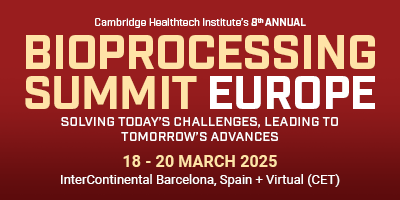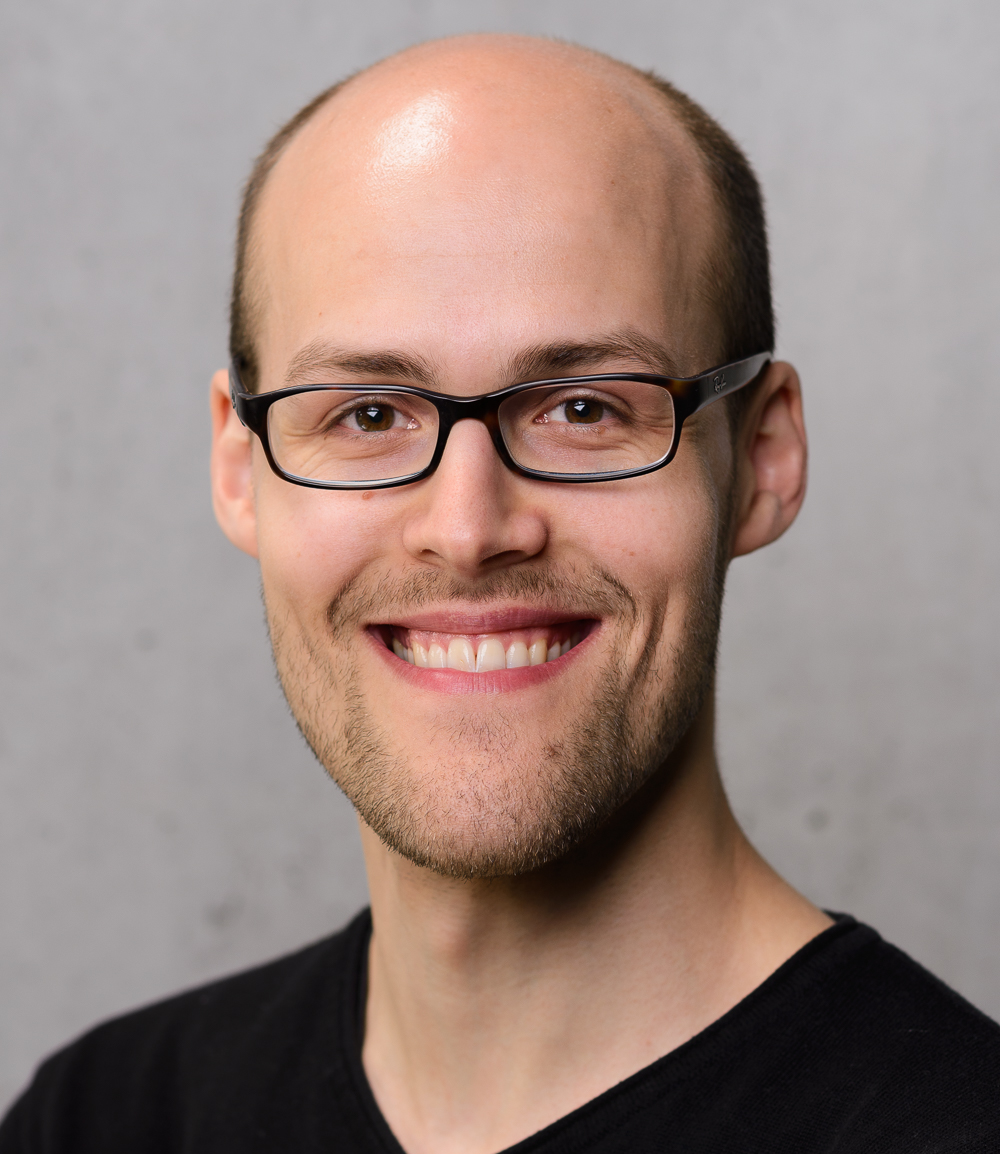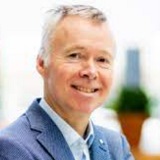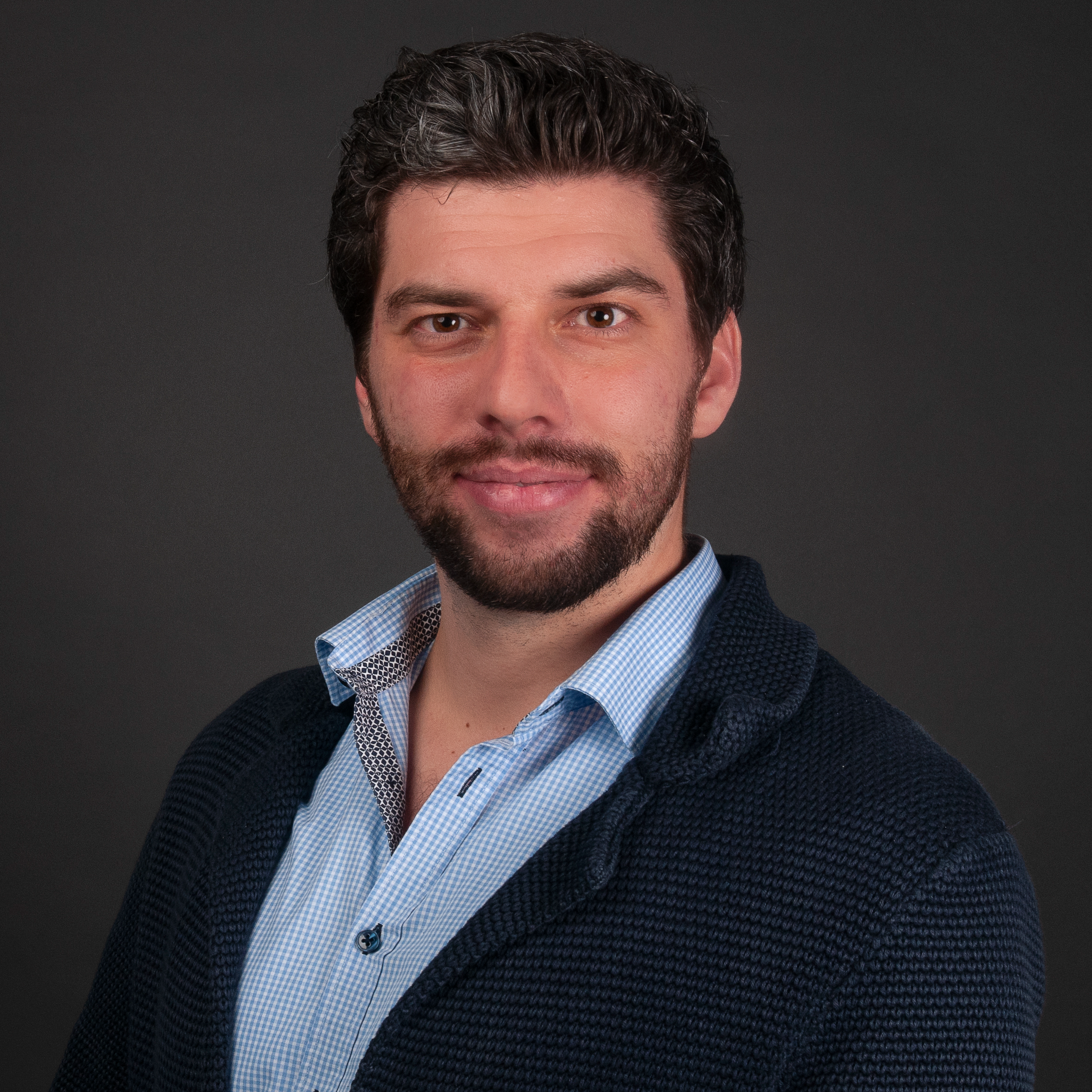演讲嘉宾
Filter by:

Yuki Abe, PhD, Senior Bioprocess Consultant, BioPharm Services Ltd

Yuki’s consultancy work covers the modelling of innovative bioprocesses, engineering design and evaluation of the economic impact of design and process on product manufacturing costs. She works as a Senior Consultant Engineer, helping clients to understand the value propositions and how to communicate effectively with their management and stakeholders while having another hat as heading Sales & Marketing activities. She holds a PhD in Biochemical Engineering and a MEng in Biochemical Engineering with Bioprocess Management from UCL. Yuki received the Sir Derek Robertson Scholarship and the IBM Business Consulting Award while at UCL. In her spare time, she appeared on the Discovery Science show as one of the four main presenters, and she appeared in the film as a supporting artist.
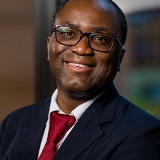
Frank K. Agbogbo, PhD, Vice President, Process Development, Forge Biologics

Dr. Frank Agbogbo has over 18 years of experience in process development, biotechnology, gene, and cell therapy industries. He is currently the Vice President of Process Development at Forge Biologics, responsible for rAAV process development and plasmid DNA production. Previously, Dr. Agbogbo was the Senior Director of Process Development at Cytovance Biologics for over 7 years where he took increasing responsibilities as Director of Process Development with oversight responsibilities over the Upstream and Downstream teams. Frank’s experience includes process development, Design of Experiments (DoE), process optimization, process characterization, and scale-up from R&D to manufacturing (cGMP and non-cGMP). He has co-authored over 15 peer-reviewed publications and contributed to 5 patents. He holds a Bachelor of Science in Chemical Engineering, PhD in Chemical Engineering from Texas A&M University, College Station, TX, and an MBA with a certificate in Entrepreneurship from the Price College of Business, Oklahoma University, OK.
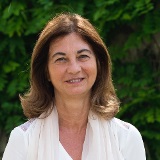
Raquel Aires-Barros, PhD, Professor, Bioengineering, Instituto Superior Tecnico

Raquel Aires-Barros is a Full Professor at the Department of Bioengineering at Instituto Superior Técnico (IST) and Senior Researcher at Institute for Bioengineering and Biosciences (iBB), Associate Laboratory i4HB-Institute for Health and Bioeconomy. She is a Chemical Engineering from IST, with a MSc in Biochemical Engineering and a Ph.D. both at IST. Was a Research Assistant in Massachusetts Institute of Technology from 1986-1987. Coordinates the scientific-pedagogical area of Biomolecular and Bioprocessing Engineering of Bioengineering Department at IST and is Vice-President of IST School Board. Current research interests include the development of new separation processes with high performance and efficiency for purification biopharmaceuticals, with special emphasis on the purification of antibodies and the development of devices- "Lab-on-a-Chip" - for protein purification / separation of cells in the microscale. She is chair of the Session of Downstream Processing (DSP) of the European Society of Biochemical Engineering Sciences (ESBES), President of the Portuguese Society for Biotechnology and editor of Separation and Purification Technology Journal. Has been involved in the coordination/participation of several European projects, and in Scientific and Organising Committees of International Conferences in the area of bioseparation. Supervised more than 70 master’s and PhD dissertations and is author of more than 250 papers and book chapters.
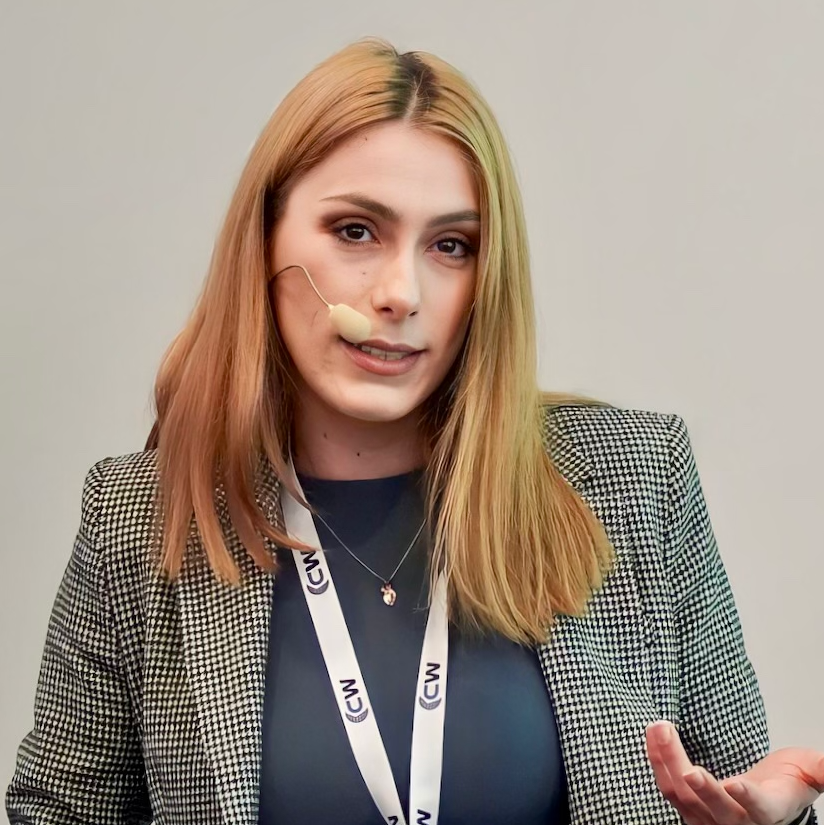
Belma Alispahic, Chief Scientific Officer, AnalysisMode

Belma Alispahic is the Founder and Chief Scientific Officer (CSO) at AnalysisMode, where she leads the development of AI-driven solutions for bioprocess design and optimization. She focuses on advancing cell culture and bioproduction by simplifying complexity, reducing experimental workloads, and accelerating timelines through innovative technologies like digital twins and predictive modeling. Belma is passionate about bridging science and technology to solve real-world challenges and fostering collaboration across the biopharma industry to drive meaningful impact.
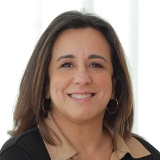
Paula Alves, PhD, CEO, iBET

Paula M. Alves is the CEO of iBET and Professor at NOVA University of Lisbon. She received her Ph.D. in Biochemical Engineering from NOVA and her B.S in Biochemistry from the University of Lisbon. Working in Animal Cell Technology since 1990, her research integrates cell metabolism understanding with biochemical engineering for the improvement of bioprocesses efficiency, also focusing on the development of new tools and technologies for pre-clinical research. Her key areas of interest include the production of biopharmaceuticals such as viral vectors and vaccines, and the development of 3D culture systems for expansion and differentiation of stem cells in bioreactors for cell therapy, regenerative medicine and in vitro toxicology applications. Professor Paula Alves was elected member of the US National Academy of Engineering in 2021 and was the Chairperson of the ESACT (European Society for Animal Cell Technology) from 2017 to June 2022. Paula Alves is currently a Member of the International Advisory Committee of the Center for Research and Development of Immunobiologicals - CerDI (Instituto Butantan, Brasil) and SAB Member of IABS (International Alliance for Biological Standardization (IABS) Endowment Fund Committee, France. At the European Commission she was member of IMI and EURL-ECVAM Scientific Advisory Committee and of the Advisory Board of Horizon 2020 Societal Challenge. She has published over 310 papers, 32 book chapters and has supervised 40 PhD students, 18 post-docs and several master theses. In 2009 she received the Scientific Merit Award from NOVA University of Lisbon, in 2021 the Gold medal of Oeiras Town and in 2024 the ECI Cell Therapies Award.
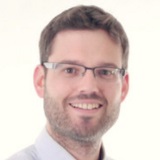
Philipp Amsler, Principal Scientist I, Protein Production, Novartis Biomedical Research

After performing my Master thesis in Molecular Biology at the University of Basel, Switzerland, I joined Novartis in 2009 as a Scientist in protein purification. Working at the interface of research and development I'm currently responsible for the production and purification of various biotherapeutic formats to support Developability Assessment and candidate selection.

Advait V. Badkar, PhD, Executive Director & Head, Nanoparticle Development, Pfizer Inc.

As the Executive Director - Drug Product Design & Development, Advait leads the organization within Pfizer’s Biotherapeutics Pharmaceutical Sciences organization focused on identifying and developing formulations and processes to support Pfizer’s entire biotech & vaccine portfolio with accountability for novel delivery technologies, adjuvant vaccines, RNA-based modalities, and microbial and mammalian produced proteins. The focus is on all things related to Drug Product from the early Research stages up to Licensure, including Commercial and Life Cycle Management support. In his role as Head of Nanoparticle Development, Advait’s accountability includes scientific, technical, strategic, and regulatory leadership of Pfizer’s mRNA/LNP and nanoparticle-based portfolio. Advait is accountable for establishing internal capabilities and expertise for formulation, process development, scale-up, and tech transfer to enable clinical and commercial supplies. In addition to this, there is a focus on external strategic alliances and collaborations. Advait received his Ph.D. in Pharmaceutical Sciences from the College of Pharmacy and Health Sciences, Mercer University (Atlanta, GA) and a MS in Pharmaceutics from Auburn University, Auburn, AL. He also has a BS in Pharmacy from Pune University (India). He is a member of AAPS and Controlled Release and is an inventor on more than 10 patents, published over 30 articles in professional scientific journals, and presented more than 50 short papers, posters and talks.
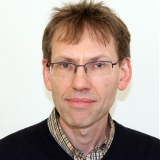
Frank Baganz, PhD, Associate Professor, Fermentation and Cell Culture, Biochemical Engineering, University College London (UCL)

After completion of a first degree in Chemical Engineering/Biotechnology (FHO Emden, Germany) he carried out a PhD in Applied Molecular Biology at UMIST (Manchester, UK). Following a short postdoctoral period in the Department of Biochemical Engineering at UCL he became a Lecturer in 1999 and currently holds a position as Associate Professor. He has an established track record in modelling, engineering and scale-up/down of fermentation and cell culture processes. In recognition for his contributions to the development of miniature bioreactor technologies he received the 2010 Pharmaceuticals Division Plenary Award of the AIChE. He has published over 80 papers and co-authored 4 book chapters.

Janina Bahnemann, PhD, Professor, Cell Culture and Microsystems Technology, University of Augsburg

Dr. Janina Bahnemann is Full Professor and the Department Head of “Technical Biology” at the University of Augsburg. She obtained her PhD from Hamburg University of Technology and joined the California Institute of Technology (USA) as a postdoc in 2015. Afterwards, she led an independent Emmy Noether (DFG) research group at Leibniz University Hannover, and held a substitute professorship at Bielefeld University. Her research focuses on cell culture and microsystems technology and the development of biosensors for biotechnological and biomedical applications.
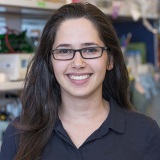
Marilia Barros, PhD, Principal Scientist, Regeneron Pharmaceuticals

Dr. Barros is a biophysicist with expertise in biomolecular interactions working in drug product development. She received her PhD from Carnegie Melon University Physics where she studied biomolecular interactions and structure of proteins at lipid membranes. During her graduating studies she became a Guest Researcher at NIST Center for Neutron Research where she conducted neutron scattering experiments. After her PhD, she joined Dr. Yueming Li at MSK as a postdoc to lead and develop the lab biophysics research for studying the mechanisms of action of proteins that have implication in both cancer and Alzheimer disease. Currently, she works for Bristol Myers Squibb as a Research Investigator investigating the colloidal stability of biotherapeutics to support drug development and new strategies of drug product formulation.
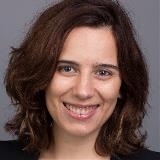
Iris Batalha, PhD, Associate Professor, Pharmaceutics and Drug Delivery, Life Sciences, University of Bath

Iris L. Batalha is currently an Associate Professor and Group Leader at the University of Bath Dep. Life Sciences. She is also a Course Director in Nanotherapeutics at the University of Cambridge Institute of Continuing Education and a freelance Senior Innovation Strategy Consultant. From 2021 to 2024, she was a “La Caixa” Junior Leader and Senior Researcher at the Institute for Bioengineering of Catalonia (IBEC) in Barcelona, Spain. From 2017 to 2020, she was a joint Postdoctoral Research Associate (PDRA) at the University of Cambridge Engineering and Medicine departments. In 2019, she co-founded the non-profit organisation Women Ahead of Their Time (WATT) CIC and she also joined the University of Cambridge Peterhouse College as a Research Associate. From 2014 to 2017, she worked as a joint PDRA at MedImmune/AstraZeneca and University of Cambridge Chemical Engineering and Biotechnology department, followed by a brief experience as a healthcare/pharmaceutical competitive intelligence consultant. Her research interests and expertise lie in medical and pharmaceutical R&D, particularly nanomedicine, bio-inspired materials, downstream processing, formulation, and drug delivery.
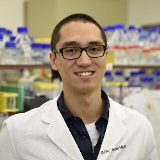
Niels Bauer, Researcher, Genomic Medicine, Roche

Niels, a staff scientist within the Roche pRED Large Molecule Research organization, applies insights from the interdisciplinary field of synthetic biology to improve the manufacturing capabilities of CHO biofactories. He has contributed to the development of state-of-the-art CHO biofactories, which ensure optimal production of heterodimeric bispecific antibodies through rational genetic engineering, CRISPR/Cas9 functional screenings, and the introduction of genomic barcodes for cell lineage tracing. His work revisits and updates CHO cell engineering options in the context of isogenic targeted integration cell line development.
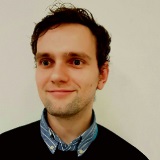
Mark Bell, Principal Bioprocessing Scientist, Purespring Therapeutics

Mark is the leader of upstream process development at Purespring Therapeutics and has 15 years of industrial experience within the cell and gene therapy sector. Mark leads a team of experienced scientists within the viral gene development, delivering robust manufacturing processes, supported by rapid, high-resolution characterization tools to enhance the production of AAV based gene therapies. Mark's team also supports the development of new adaptive manufacturing approaches by integrating technologies to allow real-time product monitoring and enable feedback control during product manufacture. Prior to his work at Purespring, Mark spent 7 years at the Cell and Gene Therapy Catapulting supporting the development of ATMP processes suitable for GMP as well as consulting for the Janssen group advising on the manufacture of its lead ocular gene therapy.
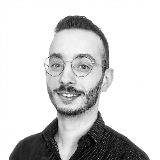
Bassem Ben Yahia, PhD, Senior Scientist, Upstream Process Sciences, UCB Pharmaceuticals, S.A.

Bassem Ben Yahia is part of Upstream Process Sciences Group at UCB Pharma in Belgium since 2011 and is focusing on innovative cell culture technologies, media development, process optimization, process intensification and process modeling. Passionate about biology and modelling biological systems, Bassem holds a PhD degree in Biochemistry & Biochemical Engineering from University of Saarlandes in Germany focused on predictive macroscopic modeling of Chinese hamster ovary cells in fed-batch processes. During his PhD, he successfully developed a simple and robust modeling methodology to predict cell culture performances which is currently used at UCB to accelerate early stage process development.
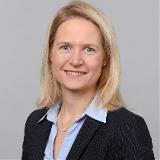
Sonja Berensmeier, PhD, Professor, Bioseparation Engineering Group, School of Engineering and Design, Technical University of Munich

Prof. Sonja Berensmeier has led the Bioseparation Engineering Group at the Technical University of Munich since 2009. Previously, she worked as a group leader at the Karlsruhe Institute of Technology in the area of biofunctional surfaces. She meets the challenge of integrating molecular biology, biotechnology, particle technology, and process engineering. Her current research focuses on process intensification by adsorptive and extractive separation methods. In the field of adsorbents, she specializes in magnetic and conductive materials and their translation into new process designs. Berensmeier gained international experience at MIT, ETH, and Iowa State University. She is well established in the scientific community and is a member of the scientific committees of the international conferences PREP and ISPPP.

Martin Bertschinger, PhD, Director, Drug Substance Development, Ichnos Sciences

Martin Bertschinger completed his Ph.D. at the EPFL in Lausanne (Switzerland) in the Laboratory of Professor Florian Wurm. After finishing his Ph.D. in 2006, Martin joined Glenmark Pharmaceuticals SA (Switzerland) in order to build teams for protein expression and cell line development. In 2019, Glenmark Pharmaceuticals span out its R&D unit into Ichnos Sciences. At Ichnos Sciences, Martin is leading the Drug Substance Development department (Cell Line Development, Upstream and Downstream Process Development).
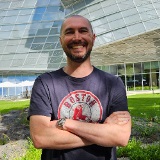
Thierry Besson, Principal Scientist, BRC, Novartis Pharma AG

Thierry Besson obtained his master’s degree in analytical chemistry at the University of Rennes - France in 2005. I always used mass spectrometry in the different laboratories I joined, starting at Servier for the structure elucidation of small molecules, then in a fundamental lab research facility in Paris to perform infrared spectroscopy in gas phase. I joined Novartis Institutes for Biomedical Research, in 2008, in Patrick Schindler’s lab in the Novartis Biologics Center (NBC), where I started to do characterization of biomolecules by mass spectrometry. First on classical antibodies and then followed by all other kinds of difficult formats to analyze such as bispecific, fusion-protein, therapeutic proteins, ADC, and more recently with Adeno Associated Viruses, Radio Ligand Therapy and oligonucleotides mAb conjugates.

Maniraj Bhagawati, PhD, Senior Scientist and Lab Head, Functional Characterization, Large Molecule Research, Roche pRED

Having completed my PhD in Biophysics from the University of Osnabrueck, Germany, in 2012, I carried out my first postdoctoral stint at the Department of Bioengineering, UC Berkeley, USA, where I focused on conformational dynamics of intrinsically disordered proteins. In 2015, I moved back to Germany and joined the Institute of Biochemistry, University of Muenster. Here, with support from an Alexander von Humboldt postdoctoral fellowship, I developed intein-based technologies for application in chemical biology. Since 2020, I have been a part of the Large Molecule Research (LMR) unit at pRED, Roche, where I have been delving into different aspects of biotherapeutic discovery and development, with a focus on biochemical and functional characterization.
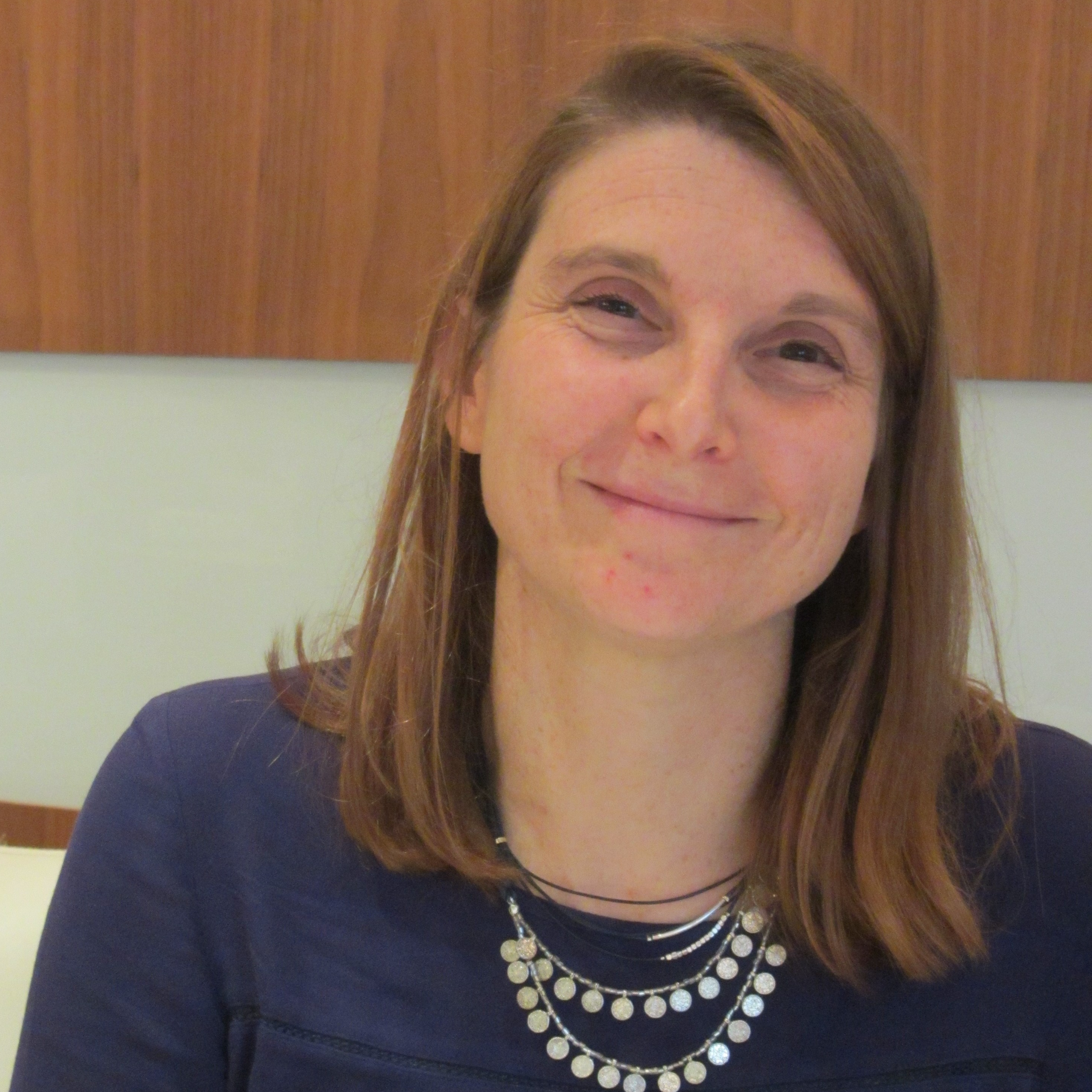
Catherine Bineau, Sr Bioprocessing Applications Specialist, Purification & Filtration, Solventum

Catherine Bineau is a Senior Bioprocessing Applications Specialist at Solventum Purification and Filtration Business in Paris, France. Catherine is responsible for providing scientific support to biopharma companies in the simplification of their bioprocesses by implementing disruptive purification technologies.
She graduated in 2000 as a Chemistry Engineer from National Institute of Applied Sciences (Rouen, FR). As an Application Engineer since 24 years, she acquired a strong knowledge in Filtration / Purification in Biopharma on the field and through continuous training at EBI (Cergy, FR), ENSTBB (Bordeaux, FR), IFIS (Boulogne, FR), IMT (Tour, FR), NIBRT (Dublin, IR), IMT (EVRY, FR), BOKU (Vienna, AUS).
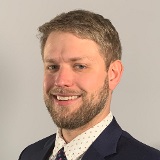
Jake Black, PhD, Senior Consultant, Syner-G BioPharma Group

Jake is a Consultant at Syner-G BioPharma Group, where he serves as an Analytical and CMC expert. His diverse knowledge base spans a range of chemistry fields including synthetic organic, analytical, chemometrics, and nanomaterials . Jake’s expertise in a variety of spectroscopic methods and data analysis, coupled with his CMC and regulatory experience, provides a unique insight into the constantly evolving world of analytical/bioanalytical method development and validation. Jake obtained his PhD in Organic Chemistry from Yale University as an NSF Graduate Research Fellow. His academic research focused on medicinal chemistry and the development of new spectroscopic methods, fields in which he has authored multiple papers.
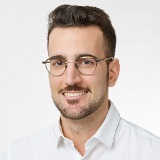
Ignasi Bofarull-Manzano, CMC Data Scientist, Körber Pharma; Industrial PhD Candidate, RWTH Aachen University

Ignasi is a data scientist with over five years of experience in the pharmaceutical industry. Since 2021, he has been working at Körber Pharma, assisting biopharmaceutical companies in achieving successful product submissions in accordance with QbD principles and regulatory compliance. In 2024, he began an industrial PhD at RWTH Aachen, focusing on the integration of physics-informed deep neural networks into end-to-end digital twins. Prior to joining Körber, Ignasi developed expertise in machine learning and hybrid modeling tools and made significant contributions to industrial scale-up projects in various start-ups.
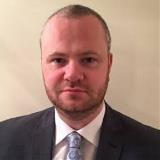
Jonathan Bones, PhD, Principal Investigator, Characterisation and Comparability Laboratory, National Institute for Bioprocessing Research and Training (NIBRT)

Jonathan holds a PhD in analytical chemistry from Dublin City University and an MBA from University College Dublin. He is principal investigator of the Characterisation and Comparability Laboratory at NIBRT, director of CONCEPT, NIBRT’s new early-stage research core facility and an associate professor in the school of chemical and bioprocess engineering at UCD.
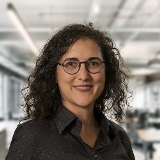
Angela Botros, PhD, Process Modeling Expert, DataHow AG

Angela is a modelling expert with 10+ years of experience across different fields, including robotics, power grids, medical devices, and bioprocesses. At DataHow, she is specialized in upstream processes for mammalian and microbial cell cultures, and works on scale-up and transfer learning projects, for many multinational pharma companies. Angela is passionate about transfer learning and eager to apply the learnings from other fields to the challenges in the pharma industry, to advance the processes and truly push for Pharma 4.0. Angela holds a BSc and MSc in electrical engineering from ETH Zurich and a PhD in biomedical engineering from the University of Bern.
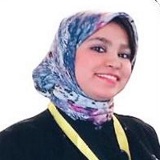
Hafsa Boulenouar, PhD, Postdoctoral Researcher, Medicine and Pharmacy, Mohammed V University of Rabat

PhD in Drug Sciences with specialization in monoclonal antibody development and biosimilars. Experienced in CHO cell line development, process optimization, and analytical techniques. Consultant for a biopharmaceutical company providing CDMO services, supporting clients in the production of biosimilars. Skilled in regulatory compliance, project management, and mAb characterization.
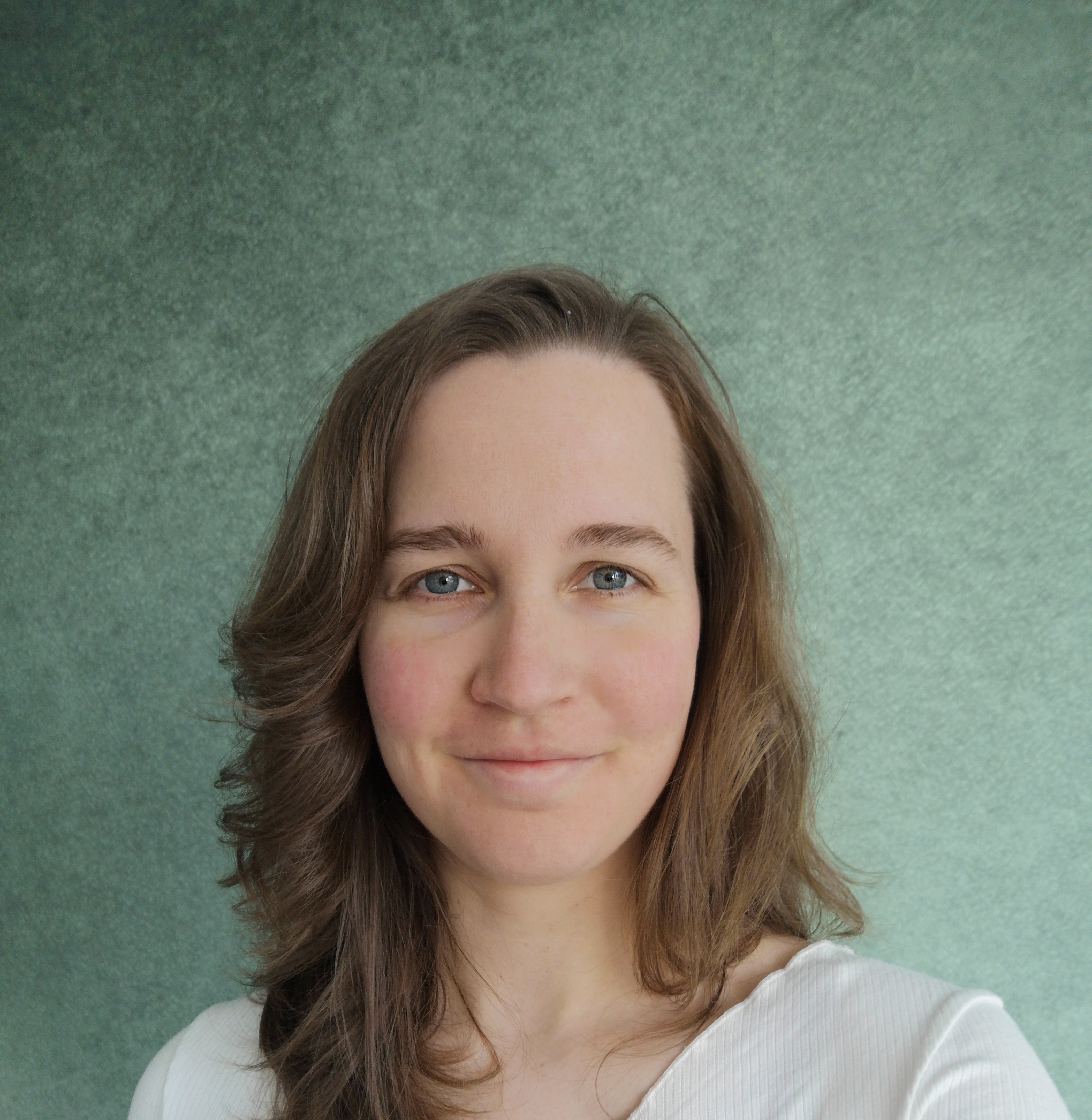
Anja Boumeester, Senior Scientist, Protein Purification & Characterization, Polpharma Biologics

Anja Boumeester is a Senior Scientist in the Protein Purification and Characterization team at Polpharma Biologics Utrecht. With over eight years of experience in the biopharmaceutical sector, she plays a pivotal role in establishing collaborations, driving innovations and enhancing existing platforms. Anja has contributed to more than 20 internal and external programs, particularly during their initial development phases. Prior to her tenure in biopharma, she spent four years in academia, developing expertise in mass spectrometry through intact protein analysis under the guidance of Prof. Dr. Albert Heck.
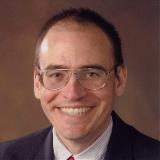
Richard D. Braatz, PhD, Edwin R. Gilliland Professor, Massachusetts Institute of Technology

Dr. Richard D. Braatz is the Edwin R. Gilliland Professor and the Director of the Center for Continuous mRNA Manufacturing at the Massachusetts Institute of Technology (MIT). He leads the modeling, control, and systems activities in many biopharmaceutical manufacturing efforts at MIT, including for vaccines, gene therapy, and monoclonal antibodies. Most activities are in automated process development workflows and modeling, design, and control of fully automated modular manufacturing unit operations and end-to-end systems, which are experimentally validated. He has consulted or collaborated with more than 25 companies including Novartis, Pfizer, Merck, Biogen, Sanofi, and Amgen. Honors include the AIChE PD2M Award for Outstanding Contribution to QbD for Drug Substance, the AIChE Separation Division Innovation Award, the AIChE Excellence in Process Development Research Award, the Research Collaboration Award from the Council for Chemical Research, and the IEEE Control Systems Society Transition to Practice Award. He is a member of the National Academy of Engineering.
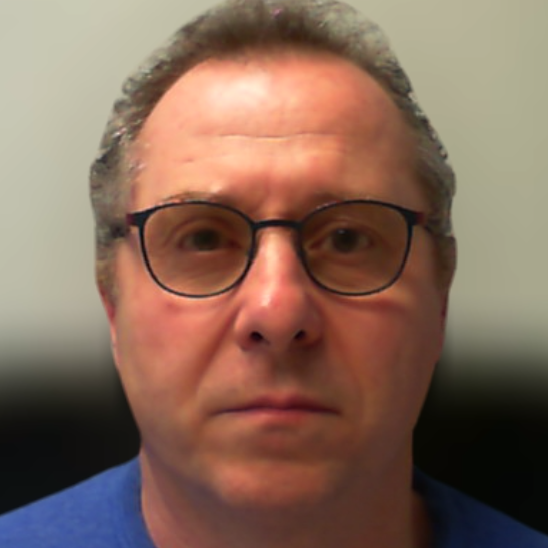
Arnaud Brisson, Team Manager Cell Culture Process Development, Cell Culture Process Development, Sanofi Grp

Arnaud Brisson is a Scientific Expert and Team Manager in cell culture process development at Sanofi (Paris, France). He has been working in process development for 30 years. He specializes in cell culture and fermentation processes for the biopharmaceutical industry, with a keen interest in emerging technologies and innovations. His expertise in process optimization and robustness significantly enhances manufacturing efficiency and reliability. His investigative skills and production support capabilities make him invaluable in resolving complex manufacturing issues. He graduated in 1994 as a Senior Technician from Superior School of Applied Biology Techniques (ESTBA, Paris) and he graduated in 2013 as a Biotechnology Engineer from Bordeaux’s Superior National Biomolecule Technology School (ENSTBB, FR).
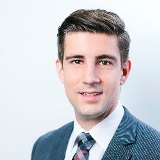
Alexander Buettner, PhD, Senior Scientist, Pharma Technical Development, Roche

Alexander Buettner obtained his Ph.D. from TUM in 2016, focusing on enhancing E. coli antibody fragment expression systems at Boehringer Ingelheim Vienna. He began his professional journey at Roche as a Postdoctoral Researcher in 2016, contributing to glycan structure function studies for Neorecormon and Mircera. Over the years, he has progressed to the roles of Scientist (2017), Group Leader (2019), and Senior Scientist (2021), where he has been involved in various areas including routine (extended) characterization of biopharmaceuticals, Data Science topics, IT system validation, instrument qualification, method validation, and automation of sample preparation.
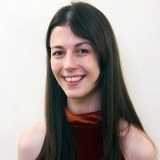
Emma Burman, EngD Student, Department of Biochemical Engineering, UCL

I’m pursuing an EngD in Biochemical Engineering at UCL, focused on investigating the mechanisms behind extracellular vesicle (EV) subpopulation isolation during ion exchange chromatography using Astrea Bioseparations’ nanofiber-based adsorbent. My goal is to provide insights that support the development of more improved bioprocesses with greater recovery, purity, and product quality.
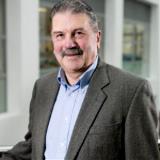
Michael Butler, PhD, Principal Investigator, Cell Technology, National Institute for Bioprocessing Research & Training (NIBRT)

Michael Butler is a Principal Investigator in Cell Technology at the National Institute of Bioprocessing Research & Training (NIBRT), Ireland, Adjunct Full Professor in University College Dublin as well as Distinguished Professor Emeritus of the University of Manitoba, Canada. He holds degrees in Chemistry and Biochemistry from the Universities of Birmingham, London (UK) and Waterloo (Canada). He was the scientific director of MabNet, a Canadian network for Mab production and founder of Biogro Technologies Inc., a spin-off company dedicated to serum-free media development. His research work focuses on the development of bioprocesses using mammalian cells for the production of recombinant proteins, monoclonal antibodies and viral vaccines.
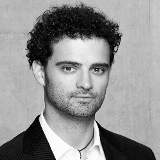
Johannes Felix Buyel, PhD, Head, Institute for Biochemical Engineering, University of Natural Resources and Life Sciences (BOKU)

Prof. Dr. Johannes Buyel is a biotechnologist and bioprocess engineer and by training and received his Bachelor of Science from the RWTH Aachen University in Aachen (one of Germany´s Excellence Universities) in 2006. He continued his master studies in Molecular Biotechnology with stays abroad in Sweden (Lund University, ERASMUS schoolarship) and the USA (Fraunhofer Center for Molecular Biotechnology, Newark, Delaware). Finishing his Masters with honours in 2009 he was awarded the Springoroum Coin. Johannes conducted his PhD at RWTH Aachen University during which he was a visiting scientist at the Rensselaer Polytechnic Institute (Troy, NY, USA) and Karlsruhe Institute of Technology (KIT) (Germany) for several months. He received his PhD with honours and was awarded the Borchers Medal. In 2014 he joined Fraunhofer IME as a group leader and became head of the Bioprocess Engineering department the year after. In parallel, Johannes started a second PhD in Bioprocess Engineering at the KIT, which he finished in 2017. Between 2018 and 2020 he conducted his habilitation and was an Associate Professor at the RWTH between 2020 and 2023. Johannes is an active member of the German Biotechnology Association (DECHEMA), and member of the Editorial Boards of Frontiers in Bioengineering and Biotechnology, Frontiers in Plant Science as well as Transgenic Research, where he is Editor-in-Chief since 2021. In 2022, he joined the University of Natural Resources and Life Sciences, Vienna (BOKU) as a Full Professor for Downstream Processing. Johannes has 15+ years of experience in the development of tailor-made upstream production and downstream processing for 50+ recombinant proteins, small molecules and DNA in different expression systems such as E. coli, yeast, plant cell cultures and whole plants both under GMP and non-GMP conditions. He is also focussing on integrated processing, i.e. the use of residual biomass for cascading use. Johannes was/is involved in international projects like PHARMAPLANT, FUTURE-PHARMA and RESILIANCE. Amongst others, he received a €2.5 million Fraunhofer Attract grant for a project to establish a model-driven high-throughput expression and purification platform for recombinant proteins (FAST-PEP). Johannes was a principal investigator (PI) in the tumor-targeted drug delivery graduate school of the German Research Foundation (DFG; 2018-2022) as well as the International Center for Networked Adaptive Production (ICNAP; 2016-2022) for which he has so far received funding of €0.9 million and €1.8 million respectively. His work is strongly inter- and cross-disciplinary, combining research in, for example, biotechnology, bioprocess engineering, informatics, mathematics, data science, oncology, cosmetics and nutrition. He has currently more than 80 publications (h-index 27, i10-index 51, 2333 citations as of August 2023).
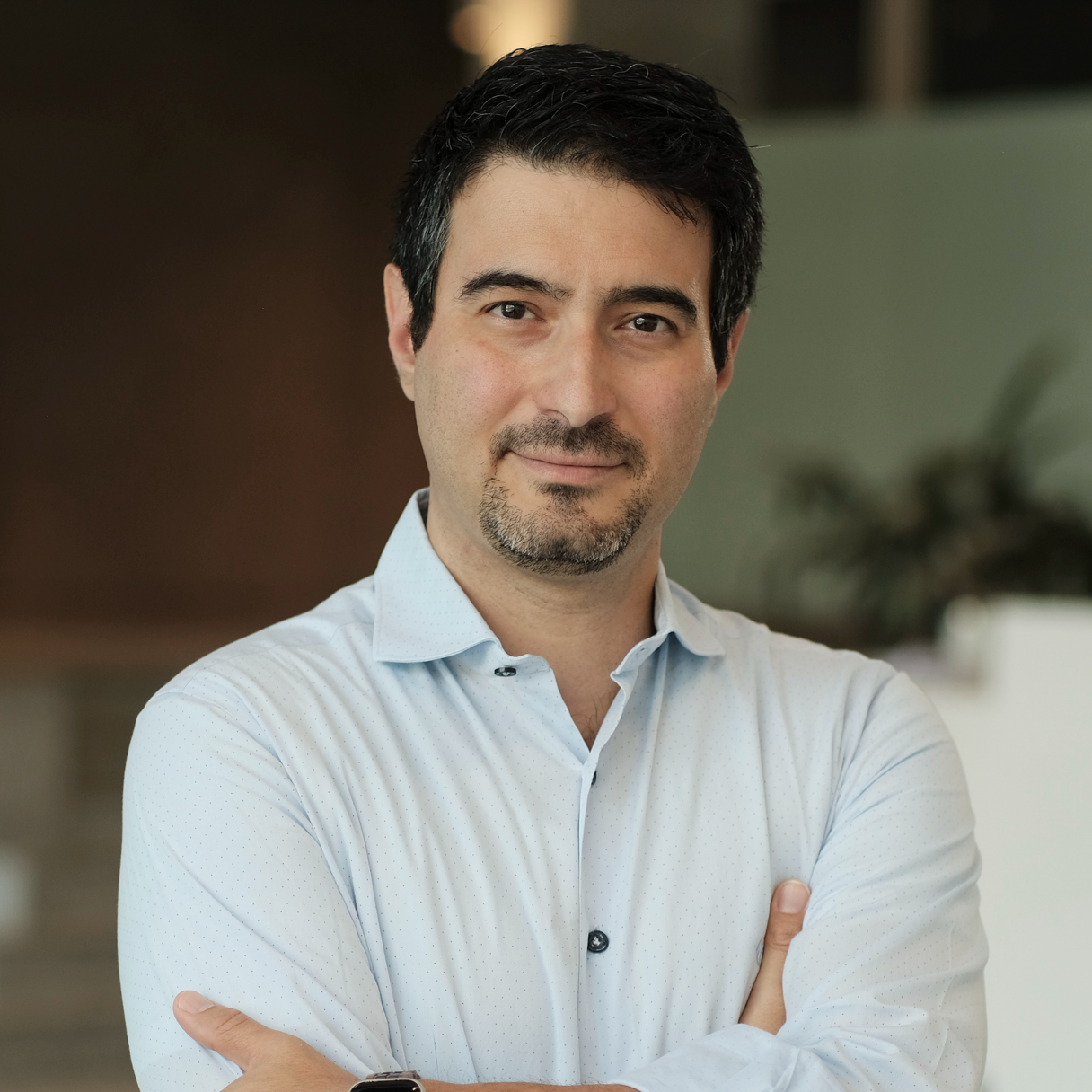
Giovanni Campolongo, Sr Market Segment Mgr, Biopharma, Hamilton Bonaduz AG

Senior Market Segment Manager, Process Analytics, Hamilton Bonaduz AG Senior Market Segment Manager at Hamilton Bonaduz AG's Process Analytics Business Unit. Giovanni specializes in business development across Biotech, Pharma, and Food sectors. His multifaceted role spans product portfolio development, sales coaching, and key accounts support. As a GMP coach, Giovanni guarantees that process analyzers align with key regulations, including GAMP 5 and CFR 21 Part 11.

Vered Caplan, CEO, Octomera and Orgenesis

Vered Caplan CEO Orgenesis Inc, a global biotech company working to unlock the full potential of cell and gene therapies in an affordable and accessible format at the point of care. Orgenesis identifies promising new therapies and leverages its POCareTM Platform to provide a rapid, globally harmonized pathway for these therapies to reach and treat large numbers of patients at lowered costs through efficient, scalable, and decentralized production. Prior to Orgenesis, Vered has been CEO of Kamedis, a company focused on utilizing plant extracts for dermatology purposes. From 2004 to 2007, Ms. Caplan was CEO of GammaCan, a company focused on the use of immunoglobulins for the treatment of cancer. During the previous five years, Ms. Caplan has been a director of numerous companies in the biotech industry, among them: Inmotion Ltd., a company involved with self-propelled disposable colonoscopies; Nehora Photonics Ltd., a company involved with non-invasive blood monitoring and others. Ms. Caplan has a M.Sc. in biomedical engineering from Tel Aviv University specializing in signal processing; management for engineers from Tel Aviv University specializing in business development; and a B.Sc. in mechanical engineering from the Technion-Israel Institute of Technology specialized in software and cad systems.
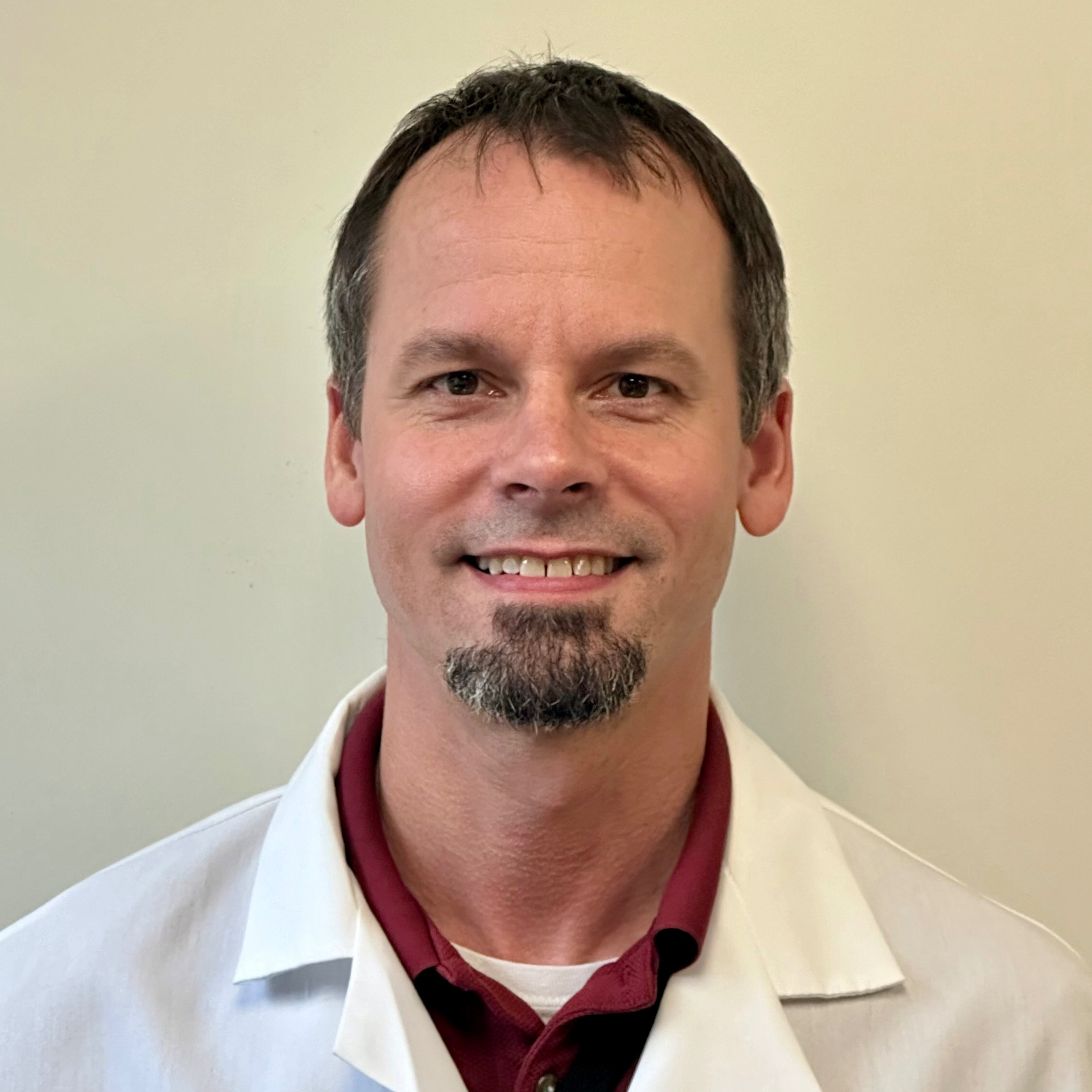
Jeffrey Cassel, Tech Dir Chromatography, Chromatography Products, WL Gore & Associates Inc

Jeff Cassel leads the Technical Team within the Chromatography Products group at W.L. Gore & Associates, Inc. He has been with Gore for nearly 15 years in both membrane development and product development. Prior to Gore he worked at two large pharmaceutical companies in small molecule product development and manufacturing, across both drug substance and drug product.
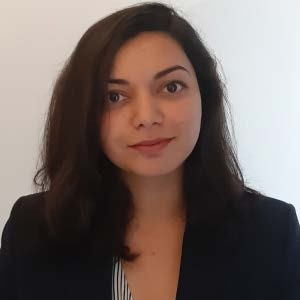
Amina Cherif Louazani, Viral Safety Manager, Pharmacy, PathoQuest

Amina Cherif Louazani (PharmD, PhD), Viral Safety Manager at PathoQuest, has a strong background in virology and bioinformatics. She holds a PhD in Infectious Diseases from Aix-Marseille University, France, and specializes in NGS data analysis and protocol development for viral transcriptomes. Amina has published several peer-reviewed articles and held various research and clinical roles. At PathoQuest, she leverages her expertise to provide expert reviews of viral safety assessments based on the iDTECT® platform of NGS assays.
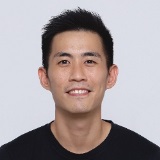
Sean Keng Rui Chia, PhD, Associate Staff Scientist, Analytical Science & Technologies, A STAR

Sean Chia is a Senior Scientist at the Bioprocessing Technology Institute (BTI), A*STAR since 2021. His research is primarily focused on the development of novel analytical methods for biotherapeutic developability profiling, in particular next-generation modalities such as bispecific and multispecific antibodies. This is aimed at uncovering the roles of developability traits in influencing safety and efficacy issues, and the rational development of candidates and formulations to improve these characteristics. Prior to his current position, Sean was a Singapore Biodesign Innovation Fellow, and previously worked at a UK biotechnology startup developing antibody-based diagnostic assays. He holds a PhD and MPhil in Chemistry from the University of Cambridge.

Therese Choquette, PhD, Head of Analytical and Translational Sciences, Tigen

Therese Choquette, Head of Analytical Sciences at Tigen Pharma, has a passion for cell therapy, cellular function, and immunology. She holds a PhD in Rheumatology from the Karolinska Institute in Sweden and completed her postdoctoral fellowship at University of Massachusetts Medical School in Worcester, MA, investigating the impact of hyperglycemia in host defense against M.tb. Her career has been focused on cell and gene therapy since 2014 in the space of analytical development, analytical strategy, and quality control.
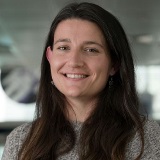
Nora Clarke, PhD, Analytical Development Scientist, Resolution Therapeutics

Nora Clarke is a cell and gene therapy scientist with expertise in early and translational research of macrophage cell therapies. She received her Ph.D. in molecular medicine and MSc in Advanced Therapeutics from Imperial College London. During her post graduate work she developed in vivo and ex vivo approaches for pulmonary cell and gene therapy. Currently, she works for Resolution Therapeutics as an Analytical Development Scientist to support product development, with a particular focus on developing methods to support the company's potency assurance strategies.
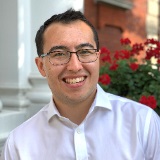
Jack Cordrey, PhD, EMEA Senior Bioprocessing Applications Specialist, Purification & Filtration, Solventum

Jack is a Senior Bioprocess Applications Specialist within Solventum’s Purification and Filtration business. With over five years of biopharmaceutical and biotechnology experience predominantly as a process development engineer, through endeavours in consumer goods and start-up businesses, he is responsible for building new collaborative partnerships and advancing bioprocess applications from discovery to clinical and commercial manufacturing with key global industry leaders in EMEA, with a focus in Belgium, the Netherlands and north-west Germany.
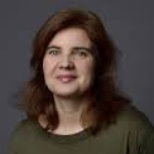
Ana Sofia Coroadinha, PhD, Lab Head, Health & Pharma Division, Animal Cell Technology Unit Cell Line Development and Molecular Biotechnology Lab, IBET

Dr. Ana Sofia Coroadinha has a Degree in Biochemistry (University of Lisbon) and a PhD in Gene Therapy performed at Généthon, Helmholtz Centre for Infection Research (HZI) and iBET, granted in 2005 by ITQB-UNL. Since July 2009 is the Head of Cell Line Development and Molecular Biotechnology Lab at iBET and ITQB-NOVA. She has over 20 years of experience in recombinant viruses and animal cell culture, areas where she has published over 50 peer reviewed papers. Dr. Ana Sofia Coroadinha group research focus on applied virology developing recombinant virus and molecular tools supporting the areas of gene therapy, vaccine development and virology.
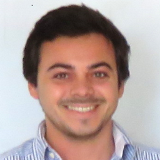
Ricardo Correia, PhD, Postdoctorate Researcher, Cell-Based Vaccines Development Lab, iBET Instituto de Biologia Experimental Tecnologica

Ricardo Correia is a Biological Engineer from IST (Portugal), graduated in 2014. From 2015 to 2017, he was a junior researcher at the Animal Cell Technology at iBET / ITQB-NOVA (Portugal), being involved in the upstream processing of a universal Influenza vaccine candidate. Ricardo got his PhD degree within the MIT Portugal - Bioengineering Systems doctoral program in 2022, working at iBET / ITQB-NOVA. He is author of 16 scientific manuscripts in peer-reviewed journals, has supervised 4 MSc and 2 PhD students, made 5 oral communications and >10 poster communications. His research focuses on the development of novel bioprocess engineering approaches for the improved production of vaccine candidates against infectious diseases such as Influenza and malaria.
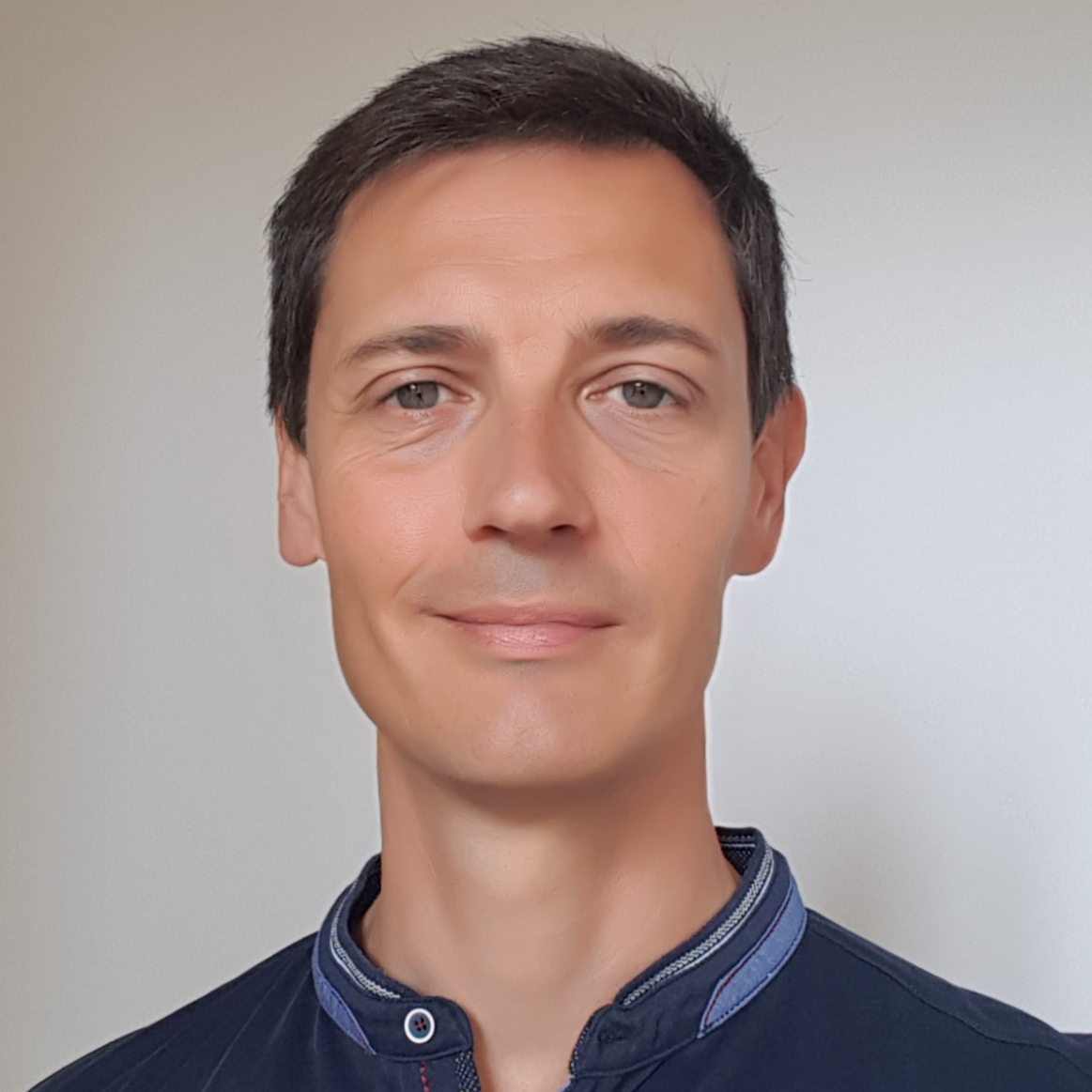
Thomas Coton, R&D Sr Project Engineer, R&D Single use and Integrated Systems, MERCK

After a PhD in Fluid Mechanics applied to turbomachiney, Thomas worked for 6 years at Safran in research and design of aircraft engine. In 2009, he moved to General Electric as aero engineer in steam turbines, still on research and design. In 2018, he finally joined Merck Life Science as Sr project engineer for the R&D group responsible to design Single Use and Integrated Systems as chromatography or TFF. He is the technical leader of the inline Virus Inactivation System.

Stephan Croft, Head of Quality and Senior Principal Consultant, Dark Horse Consulting Group

Stephan is the Head of Quality Assurance for Dark Horse Consulting and is a Global Quality leader in the pharmaceutical industry for over 21 years, who has broad experience in CGT, biological, ophthalmic, sterile injectable and solid dose manufacture, packaging, and distribution, all in support of both commercial and clinical trial models. Stephan also holds experience in cGMP manufacture, testing, and quality assurance for supply within the US, EU, and the majority of major global regulatory markets. Stephan is an experienced Qualified Person, Responsible Person, and Manufacturers Specials Quality Controller. Having worked for both small CMO scale and large, multinational ‘blue-chip’ pharma, Stephan brings a wealth of technical and leadership experience at both ‘site’ and ‘above site’ roles. Prior to joining Dark Horse in October 2021, Stephan worked within Pfizer and Hospira at various ‘site’ and ‘above site’ leadership and technical roles, including Global Transport Quality Leader (Vaccines, GTx and Traditional supply), EU product release leader, and Regional EMEA Quality Leader. Special activities during this period included supporting the integration of the EMEA regional integration into Pfizer, QMS and product release remediation, and large-scale remediation of a sterile injectables facility located in India and a compounding facility located within the UK. Prior to Pfizer, Stephan worked at Allergan, supporting the manufacture and distribution of both Biologic, Ophthalmic, and a range of alternative IMP dosage forms. Stephan worked as both a Qualified Person, Responsible Person and Manufacturers Specials Quality Controller on both UK and Ireland Licenses. Stephan also worked as both a QC Microbiologist and Quality Officer within Cobra Biomanufacturing supporting a large variety of activities.
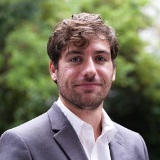
Tommas De Santis, Institute of Bioprocess Science and Engineering, BOKU

PhD student at the University of Natural Resources and Applied Life Sciences in Vienna (BOKU), I have specialized in performing techno-economic analyses for the EU-funded project "Enzycle," which focuses on recycling plastic via microbial enzymes. More recently I have been working on the "Econti" project where the goal is to develop a fully integrated continuous bio-manufacturing process. Throughout my academic journey, I discovered that my true passion lies in accelerating the green transition by helping innovative businesses scale up and commercialize their technologies. This realization was sparked by reading Bill Gates' book "How to Avoid a Climate Disaster," which motivated me to pursue a career where I could have a tangible impact on sustainability. This led me to join the European Circular Bioeconomy Fund as an investment analyst, where I gained hands-on experience in assessing and supporting sustainable innovations.
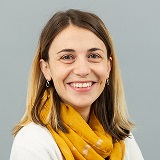
Ludivine Dejoint, Head, Manufacturing and Project Management, Inits

Ludivine Dejoint leads the DS manufacturing and project management at Inits SMO (shared manufacturing organization), a new model of bioproduction facility. She has 12 years of experience in CMC and bioproduction for biological products, including ATMP, antibodies or recombinant protein. As Senior CMC consultant at Inits consulting subsidiary for the past 5 years, she supported biotech companies in CMC project management, CMC strategy development, CMC regulatory documentation writing, bioprocess analysis and comparability studies.
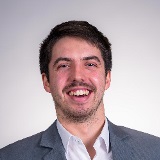
Felix Dieringer, Scientist, Takeda, PhD Student, BOKU University

Felix is a PhD student at Takeda and member of the Bioprocess Engineering Doctoral School at BOKU University (University of Natural Resources and Life Sciences), Vienna. His PhD thesis focuses on environmental sustainability of biologics and the improvement of Green Metrics. Felix has several years of industry experience in downstream process development for recombinant complex proteins. Felix holds a Master's Degree in Medical Biotechnology from BOKU University.
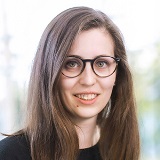
Annabelle Dietrich, PhD Student, Biomolecular Separation Engineering, Karlsruhe Institute of Technology

I am a PhD student specializing in biomolecular separation engineering, with a focus on DSP and PAT development for virus-like particles. Passionate about precipitation and cross-flow filtration as size-selective separation techniques, I am dedicated to advancing such non-chromatographic purification strategies. Further, my expertise in UV/Vis and Raman spectroscopy for real-time monitoring enables deeper insights into the dynamics of such purification processes.
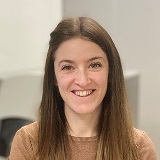
Elena Dominguez Vega, PhD, Assistant Professor, Center for Proteomics and Metabolomics, Leiden University Medical Center

Dr. Elena Dominguez Vega received her Ph.D. degree on analytical chemistry in 2011 at the University of Alcala (Spain). After joining the Biomolecular Analysis group at Utrecht University (The Netherlands) in 2012, she worked on the development of new electrophoretic methods for the analysis of biopharmaceuticals. In 2013 she continued as postdoctoral researcher at VU University where she focused on the study of protein heterogeneity, conformation and affinity. In May of 2017, Dr. Dominguez Vega joined the Center for Proteomic and Metabolomics at the LUMC as assistant professor were she continue her work on the characterization of glycoproteins of clinical and pharmaceutical interest. Furthermore she has expanded her research focus to the development of innovative analytical platforms for the analysis of gene therapy products. Over the years, Dr. Elena Dominguez Vega has closely collaborated with several pharmaceutical companies and has received multiple grants and awards in support to her research.
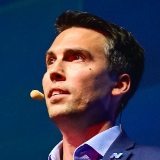
Mark Duerkop, CEO, Novasign GmbH

Leading Novasign as CEO, Mark is passionate to improve bioprocesses for the production of biopharmaceuticals, enzymes and substitutes for animal-derived proteins. With his team, he is developing a hybrid modeling software for both up and downstream processes. This software utilizes artificial intelligence applied to process data and first principle models (hybrid models) to not only accelerate bioprocess optimization but also to reuse these models for model predictive control strategies. The company Novasign was founded in 2019 offering this unique software solution which is already in use by several TOP25 pharma companies to also accelerate their process development.
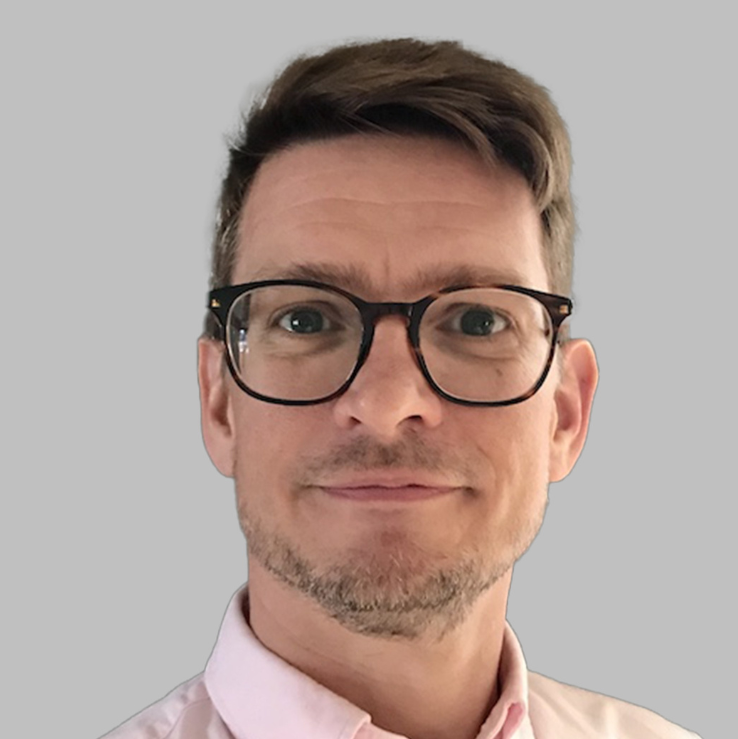
Paul Dyer, Field Application Scientist, Halo Labs

Paul Dyer obtained his PhD in Cell Biology and Drug Delivery Strategies from the University of Greenwich. Following a period in academic research, Paul joined Halo Labs as an application scientist covering UK and Europe. Building upon his extensive background in medical science, he has been focusing on the development of new applications of particle analysis within the area of biologics, in particular cell therapies, resulting in the release of a new product, the Aura CL™.
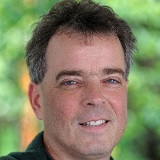
Michel H.M. Eppink, PhD, Senior Director, Downstream Processing, Byondis BV

Michel received his MSc. in Biology/Chemistry in 1993 from the University of Utrecht and his PhD in 1999 from the Wageningen University and Research at the Laboratory of Biochemistry with background in structure/function relationships of proteins. Michel Eppink has more than 35 years of experience in Downstream Processing of large biomolecules (proteins, lipids, carbohydrates).From 2009 up to 2014 Michel Eppink was Associate Professor and from 2014 - 2024 he was Special Professor at the Department of Bioprocess Engineering at Wageningen University and Research heading a group of PhD candidates in the research of biorefinery technologies such as new purification/analytical techniques for proteins/lipids/carbohydrates. Since 2024 is he Professor at TU Delft at the Biotechnology Department in the field of Industrial Biopharmaceutical Downstream Processing. Furthermore, Michel was section member of the Downstream Processing section of the Dutch Biotechnology Association from 2009 - 2024 and since 2014 scientific committee member of the ISPPP.
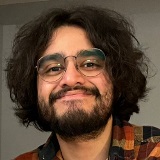
Daniel Espinoza, PhD, Advanced Process Engineering, Lund University

Daniel is a recent Ph.D. graduate from the division of chemical engineering at Lund University. Raised in the Swedish city of örebro, he has lived in Lund for over 10 years after beginning his studies as a chemical engineer back in 2014. His research regards the development of digitalization tools for biopharmaceutical downstream processes, which includes digital twins, automation and control. In his off time, he is an enthusiastic home cook and is currently fascinated by Mexican and Japanese cuisine.
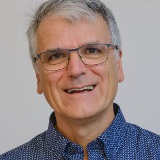
David Estape, PhD, Technology Manager and Senior Fellow, Process Engineering, CRB Group GmbH, Member, BioPhorum, ISPE

David Estapé is a seasoned biotechnology expert with a Ph.D. in Chemical Engineering and 25 years of experience in facility design and GMP consulting across the biotech, vaccine, blood plasma, and ATMPs sectors. Having contributed to major biotech projects worldwide, from start-ups to leading pharmaceutical firms, David has a deep interest in emerging technologies and regulatory trends. He actively engages with organizations such as BioPhorum and the International Society for Pharmaceutical Engineering (ISPE). Currently, he serves as the Technology Manager at CRB’s Basel office in Switzerland.
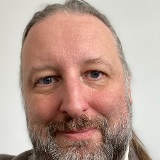
Andrew Falconbridge, Senior Biotech Innovation Consultant

Andrew has 35 years’ experience within the biotech industry covering a broad range of applications. Most recently has been extensively involved in building and leading development, manufacturing, operational excellence and technology innovation teams. Recognised as a technology innovation leader has been involved in many collaborations, testing and implementations of a number of next generation solutions involved in process intensification, PAT and digital technologies. Now works as an independent consultant using extensive experience in next Gen technology and process intensification to help companies improve their processes by building a road map, strategy and implementation plan utilising the latest process technologies.
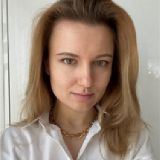
Katerina Farukshina, Associate Lead Scientist, Technology & Process Innovation, Cell & Gene Therapy Catapult

Katerina Farukshina, a dedicated researcher in biotechnology, excelled as a downstream process engineer at Chugai Pharmaceutical in Japan, contributing significantly to the development of downstream processes for mAb drug substance production for crucial clinical studies. Transitioning to Cell and Gene Therapy Catapult in the UK, she assumed the role of associate lead scientist, where she continues to innovate within the viral vector technology space as part of the Process and Innovation team.
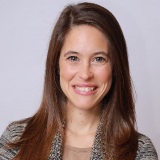
Sofia Fernandes, PhD, Senior Scientist, Animal Cell Technology, iBET Instituto de Biologia Experimental Tecnologica

I am a Senior Scientist, at iBET in the Cell Line Development and Molecular Virology Lab. My research focuses on viral vector production for gene therapy, particularly optimizing adeno-associated virus (AAV) production platforms in mammalian and insect cells. To achieve this, I have been using molecular biology and applied virology tools to engineer cell lines and virus. I am also studying the intricate connections between AAVs and their helper virus and involved in the implementation of analytical methods to assess vector productivity, purity, and biological activity. My goal is to provide healthcare solutions that can improve people’s lives, and I have been actively engaged in international industrial projects, translating academic research into technological advances and market value.
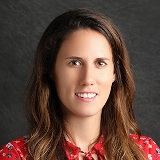
Lara Fernandez-Cerezo, PhD, Associate Principal Scientist, Merck Sharp Dohme (MSD)

Lara Fernandez Cerezo graduated from University College London with a Master of Engineering in Biochemical Engineering in 2014. She then pursued an Engineering Doctoral degree, a 4-year industrial PhD program with Merck focusing on scale-down filtration technologies of high concentration mAbs. Upon graduation, she established the ambr crossflow high throughput system as a process characterization/development UF/DF tool in the Merck process development teams. In 2019 she transitioned to continuous manufacturing (CM) in biologics gaining ‘hands-on’ experience in both non-GMP 50L development scale and GMP 500L clinical scale. Since moving back to the development group in the US in 2021, Lara continues to influence the GMP continuous manufacturing teams at Merck by providing recommendations for the design of our next-generation commercial CM facility including a customized SPTFF/ILDF Skid. Lara now spearheads novel downstream biologics continuous manufacturing projects in the Enabling Technology group at Merck. One of them will be PKM, which is the focus of today's talk.
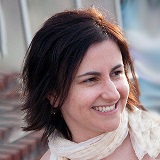
Gisela M. Ferreira, PhD, Senior Director, AstraZeneca

Gisela Ferreira received her Ph.D. in Chemical Engineering from the University of Maryland Baltimore County in 2001 and is currently a Director in the Purification Process Sciences at AstraZeneca. Dr. Ferreira has broad biotechnology experience and expertise in areas including process development for large-scale cGMP manufacture of biologics, recombinant biopharmaceutical purification (early and late stage development), Quality by Design concepts, scale-up, technology transfer, CMC project management, virus clearance, and regulatory agency interaction through commercial launch, including Imfinzi, Fasenra and Imjudo.
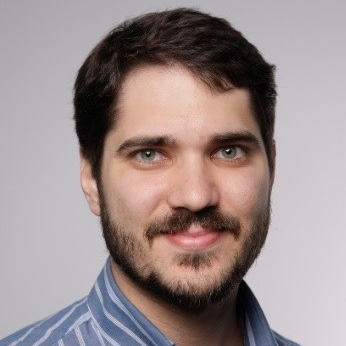
Haiko Fischer, Product Manager, Bioprocess, Asahi Kasei Bioprocess Europe

Haiko Fischer joined Asahi Kasei Bioprocess in December 2017. He has been a member of the R & D team for three years and is now the Product Manager for Germany, Austria, Switzerland, and Eastern Europe. Haiko studied Chemical and Process Engineering, and as Product Manager, he assists his customers with all technical questions regarding Planova Virus Filters and BioOptimal Microfilters, as well as providing training on the respective products and technologies.
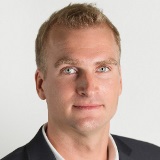
Bastian Franke, PhD, Associate Director and Group Leader, Downstream Processing, Numab Therapeutics AG

Bastian Franke works at Numab Therapeutics AG as a group leader USP/DSP and leads a team of research associates responsible for the manufacturing of multispecific antibody-based therapeutics, process development and technical transfer to C(D)MOs, as well as implementation of automated and novel purification workflows. Prior to Numab he gained first industry experience at DSM as a scientist in downstream processing after a postdoctoral fellowship at the University of Basel, Switzerland, where he developed novel isotopic labelling techniques for NMR applications and automated multicolumn purification schemes in collaboration with Cytiva. Bastian Franke received his PhD in structural biology from the University of Queensland, Australia.

Rajiv Gangurde, PhD, Vice President, Technical Operations, Cell & Gene Therapy, Parexel

Rajiv Gangurde, PhD, Vice President of Technical Operations for Cell and Gene Therapy at Parexel, has over 18 years of industry experience in biopharmaceutical development, harnessed in the biotechnology hub of Massachusetts, USA. Most recently, Rajiv served as Chief Technology Officer at SparingVision, an ocular gene therapy company, where he led all activities related to bioprocess and analytical development, manufacturing, and quality. Before SparingVision, Rajiv was Senior Director and Head of Chemistry, Manufacturing and Controls (CMC) at Voyager Therapeutics. In this role, he was responsible for CMC strategy and management of the company’s entire gene therapy portfolio. Prior to Voyager, Rajiv was Director of Bioprocess Development and Manufacturing at Genocea Biosciences, where he led upstream and downstream process development and biochemistry groups for early- and late-stage recombinant-protein-based therapeutic vaccines. Prior to Genocea, Rajiv served as Head of Protein Sciences at LakePharma, leading therapeutic protein production efforts for pre-clinical studies. Rajiv obtained his PhD in Life Sciences from Mumbai University in India and did postdoctoral research at the Department of Biochemistry at the New Jersey Medical School, and at the Department of Molecular and Cellular Biology at Harvard University. Rajiv is based in Massachusetts, USA.
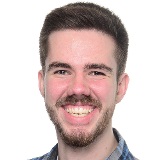
Jonathan Garlipp, PhD, Student, ETH Zurich

Jonathan Garlipp obtained his Master’s degree in Process Engineering from ETH Zürich. Currently he is a PhD candidate in the Arosio Lab in the Institute for Chemical and Bioengineering at the Department of Chemistry and Applied Biosciences at ETH Zurich. His research interests focus on the development of innovative technologies based on phase separation for the scale up of downstream processes for biogenic nanoparticles, including extracellular vesicles.
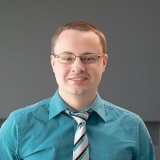
Jimmy Gaudreault, Researcher, Chemical Engineering, Polytechnique Montréal

I am a recent PhD graduate in the Chemical Engineering department of Polytechnique Montreal, where I have also completed a Bachelor's degree. I have worked extensively on the Surface Plasmon Resonance (SPR) technique, more precisely on its current and potential applications in monitoring bioprocesses. This includes the elaboration of innovative assays and novel data analysis methods.
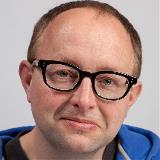
Krist V. Gernaey, PhD, Professor, Chemical & Biochemical Engineering, Technical University of Denmark

MSc (1993) and PhD (1997) from Ghent University (Belgium). Postdoc positions (1998-2005) at Ghent University (Belgium), école Polytechnique de Montréal (QC, Canada), the Technical University of Denmark (DTU) (Denmark) and Lund University (Sweden). First associate professor at DTU Chemical Engineering (2005-2012), then Professor in Industrial Fermentation Technology ("The Novozymes professor") since 2013. Head of the Process and Systems Engineering Center (PROSYS) since 2014. CEO of Bioscavenge ApS, a startup with focus on resource recovery from bio-based production systems, from 2017 to 2021. Current research with focus on large-scale fermentation, mathematical modelling, investigation of mass transfer issues across scales, Process Analytical Technology (PAT), continuous production, resource recovery, process simulation with applications to fermentation, pharma, wastewater treatment and resource recovery operations.
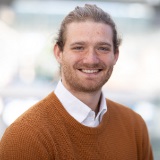
Lukas Gerstweiler, PhD, Lecturer, School of Chemical Engineering, The University of Adelaide

Lukas Gerstweiler is a lecturer in Bioprocess engineering at the School of Chemical Engineering at the University of Adelaide, Australia. He is currently establishing the biomanufacturing research group focusing on efficient manufacturing of biopharmaceuticals such as Virus-like particles, mRNA and recombinant proteins. The research focus is on continuous multi column chromatography, process modeling, process integration and better purification pathways.
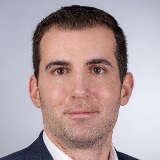
Tobias Graf, Principal Associate Scientist, Analytical Development, Roche Diagnostics GmbH

Tobias is a dedicated analytical chemist with over five years of experience in the biopharmaceutical industry. He holds a Master of Science degree from the University of Regensburg and began his professional career at Roche Pharmaceuticals in Penzberg, Germany, as a lab specialist in the Analytical Development department. With a pronounced focus on high-performance liquid chromatography (HPLC) and mass spectrometry (MS), Tobias has continually advanced methodologies for host cell protein (HCP) identification and quantification as well as the characterization of biotherapeutics. In his current role with the Process Analytical Technology (PAT) team at Roche, Tobias has been instrumental in developing ultra-fast online HPLC methods for real-time bioprocess monitoring, driving innovation and enhancing process control.
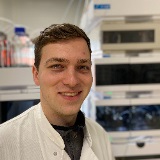
Christoph Gstöttner, PhD, Scientist, Roche

Dr. Christoph Gstöttner obtained his PhD in 2021 at the Leiden University Medical Center (Netherlands) under the supervision of Prof. M. Wuhrer. His PhD research was focused on the development of electrophoretic but also chromatographic methodologies for the in-depth characterization of biopharmaceuticals such as monoclonal antibodies or newer antibody formats. In his postdoc, he focuses on the development of new CESI-MS methods for the functional characterization of biopharmaceuticals and their affinity to Fc receptors.
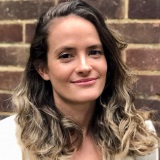
Aline Hughson, PhD, Principal Scientist, AAVantgarde Bio

I am a bioprocessing expert with a background in pharmacy and a Ph.D. in Biochemistry. I have worked on Yellow Fever vaccine production developing upstream methods for Yellow Fever vaccine production using mammalian cells in microcarriers-a significant shift from traditional techniques. During my PhD, I focused on process development of recombinant blood proteins. Post academia, I transitioned into cell and gene therapy space. Initially, working on process development in various iPSC programs and most recently viral vectors. I currently work on USP & DSP optimisation and scale up for AAV production alongside managing technology transfers for clinical programs.
.tmb-0.jpg)
Jahid Hasan, PhD, Lead, Technical, Cell and Gene Therapy Catapult
.tmb-0.jpg)
Jahid is a Lead Scientist with 10 years of experience at the Cell and Gene Therapy Catapult. He has extensive experience developing processes across cell and gene therapy and leads the development of automated differentiation processes on the Allogeneic Cell Therapies programme. Jahid specialises in bioprocess translation with a strong focus on process automation and scale-up. His background is in Biochemical Engineering and he has a PhD in Tissue Engineering from the University of Leeds which focused on the decellularisation of porcine bone-meniscus-bone for use as a meniscal replacement.
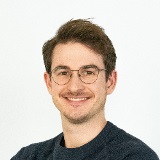
Benedikt Haslinger, Bioprocess Modelling Engineer, Novasign

Benedikt holds a Master's degree in Biotechnology from the University of Natural Resources and Life Sciences, Vienna, with a specialization in Bioprocess Engineering. At Novasign, he is actively engaged in customer projects while pursuing a PhD. His research centers on developing an end-to-end model for continuous bioprocessing, encompassing various unit operations.
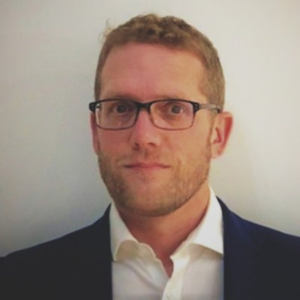
Mike Helme, Senior Sales Specialist Biopharma UK/Ire/Nordics, Sales, CYTENA GmbH

Mike is the CYTENA Senior Sales Specialist for UK, Ire, Nordics and Southern Europe. He qualified with a Masters degree in Forensic Science from Kings College London over 20 years ago working for a private forensic company for 8 years. During the last 13 years he has sold a range of products and services across Europe focussing on biopharma accounts developing novel therapeutics. He has been with CYTENA for over 2 years, working with cell line development customers to optimise and accelerate cell line development processes for therapeutic antibodies. cell and gene therapies.
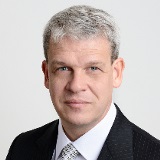
Christoph Herwig, PhD, former Professor, Bioprocess Engineering, Vienna University of Technology; CPO, Fermify GmbH; Senior Scientific Advisor, Körber Pharma Austria

Christoph Herwig, bioprocess engineer from RWTH Aachen and obtained a PhD in bioprocess identification at EPFL, Switzerland. From 2008 to 2023, he was full professor for biochemical engineering at the Vienna University of Technology. The research area focused on the development of data science methods for integrated and efficient bioprocess development along PAT and QbD principles for biopharmaceuticals. During his employments in various industries, such as with Lonza, he was deeply involved in the design and commissioning of large chemical and biopharmaceutical facilities. In 2013 he founded the company Exputec, which is now part of Körber Pharma, pioneering data science software solutions for the biopharma life cycle. Here, Christoph currently also acts as senior scientific advisor for Körber. In 2021 he cofounded Fermify and acts as CPO, focusing on providing a fully digitalized production platform for vegan cheese.
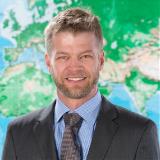
Oliver Hesse, Lead, CMC Digital Transformation and Data Science

Oliver Hesse is the Lead of CMC Digital Transformation and Data Science Capability Cluster at Bayer Pharma Product Supply, based in Berkeley, CA. He began his career in small biotech, developing high-throughput screening systems for large molecules that utilized automated decision-making. Since joining Bayer in 2008 and moving to the Berkeley site in 2011, Oliver has focused on lab automation, lab informatics, and data sciences. In his current role, which he assumed on August 1, 2024, he oversees the application of data science and digital technologies in both biologics and small molecules, enhancing process understanding and ensuring seamless integration from process development to commercial manufacturing.
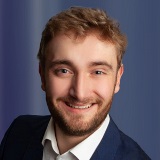
Jakob Heyer-Mueller, PhD Student, Institute of Engineering in Life Sciences, KIT

PhD candidate at Karlsruhe Institute of Technology (MAB), working on digitization of processes and development PAT and data-driven sensor application in biopharmaceutical industry.

Rick Hibbert, PhD, Vice President, Head of CMC Science and Technologies, Genmab BV

Rick Hibbert obtained his Wellcome Trust PhD from Oxford University investigating IgE antibody biology. He subsequently worked as a Post-doctoral Research Fellow at the Netherlands Cancer Institute, later combined with a funded MBA. He joined Genmab in 2013 and is currently Senior Director and Head of the CMC Science and Technologies Department in Utrecht, focused on early and late-stage CMC development of Genmab’s antibody products.
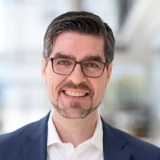
Christian Hunzinger, PhD, Senior Director and Head, CMC Development Proteins, ADCs and Chemical Entities, BioNTech

Christian is Senior Director, CMC Development Proteins, ADCs & Chemical Entities at BioNTech SE. Christian holds a PhD in Biology from the University of Mainz, Germany. He has 25 years of experience in biotech and pharmaceutical industry with a broad technical expertise ranging from early target and biomarker discovery up to late-stage CMC development and commercial manufacturing of protein-based biologics. Prior to joining BioNTech, Christian worked in various positions at Rentschler Biopharma SE, Merck KGaA, and ProteoSys AG.
- Accelerating Analytical Development
- Next-Generation Analytical Methods
- Intensified and Continuous Processing
- AI and Process Control
- Cell Therapy CMC and Manufacturing
- Advances in Recovery and Purification - Part 2
- Advances in Recovery and Purification - Part 1
- Gene Therapy Manufacturing
- Gene Therapy CMC and Analytics
- Process Modelling and Developability
- Cell Culture and Cell Line Engineering - Part 2
- Cell Culture and Cell Line Engineering - Part 1
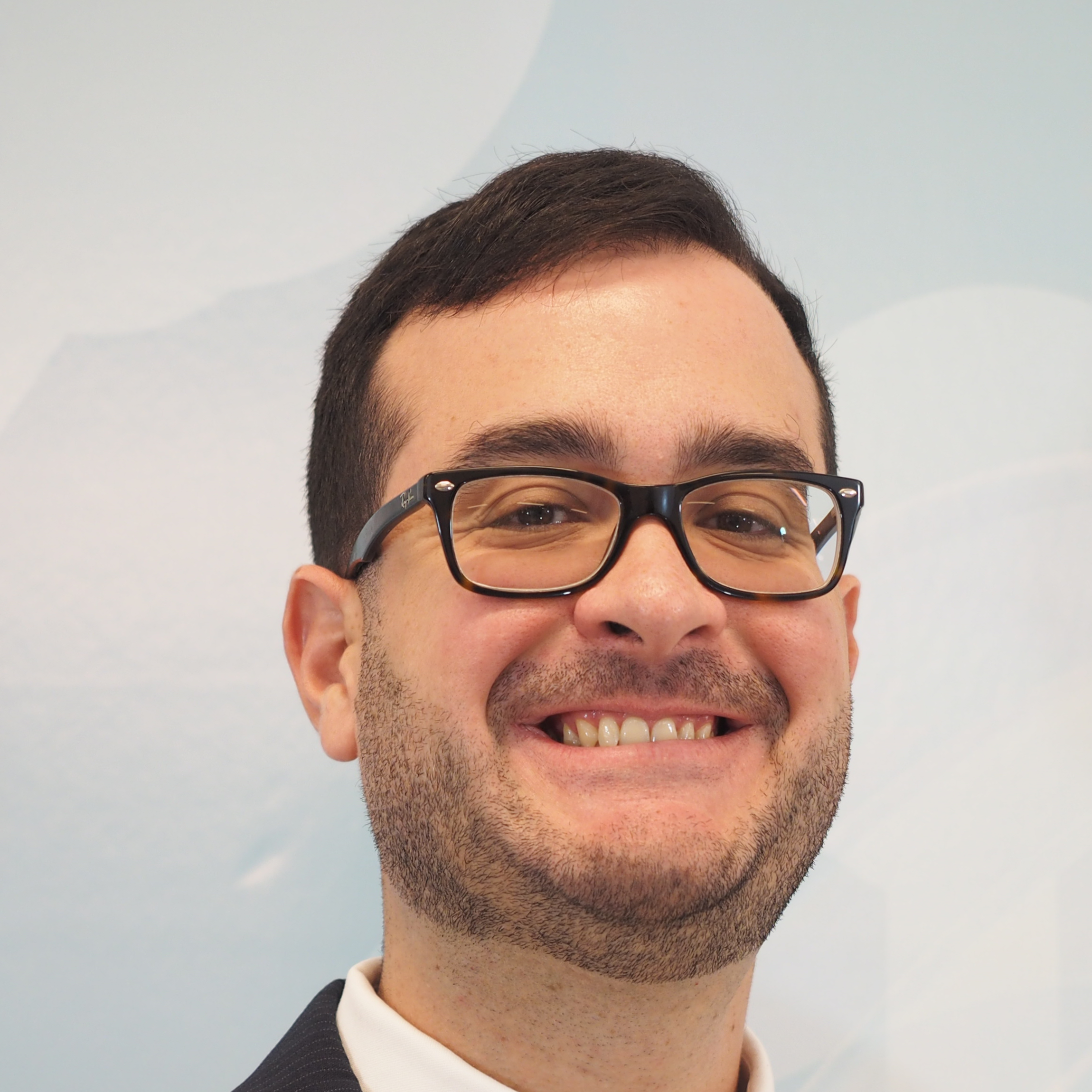
Jared Isaac, Associate Director Chromatography & Mass Spec., Research and Development, Cygnus Technologies

Dr. Jared Isaac earned his PhD in Biomedical Research from the University of Cincinnati and his MBA from Western Michigan University. He has over eight years of industry experience in oncology, molecular diagnostics, medical devices and biopharmaceutical markets. Trained in both NGS genomics and LC-MS proteomics at Thermo Fisher Scientific, he is an expert in qualitative and quantitative mass spectrometry methods for biopharmaceutical process impurities.
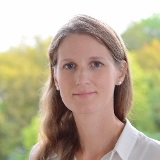
Madelène Isaksson, Doctoral Student, Department of Process and Life Science Engineering, Lund University

Madelène holds a Master of Science in Engineering in Biotechnology from Lund University in Sweden. She is currently a PhD student at the Department for Process and Life Science Engineering at the same university. Her research focuses on developing more efficient, robust and sustainable downstream processes for purification of biopharmaceuticals, through integrated continuous processing, increased automation and improved buffer management.

Inês A. Isidro, PhD, Head of Biosystems and Data Science, iBET

Inês Isidro is Head of the Biosystems and Data Science Group at iBET. She holds a PhD in Bioengineering and her current research combines machine learning, mechanistic modeling, systems biology, and other advanced data analytics platforms to design tailored data-driven strategies to address three major challenges: improving bioprocesses for cell and gene therapy, enabling precision medicine, and supporting drug discovery.
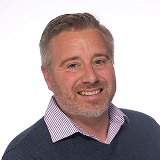
Kalle Johnson, Senior Director, Cell Culture Media, UPSIDE Foods

Kalle is a bioprocessing industry veteran who has led the development of robust, scaleable cell culture media and processes. He earned a BS in biology from Utah State University and an MS in biotechnology from Johns Hopkins University. During his tenure at HyClone (ThermoFisher and GE Healthcare), he developed many new standard and custom media. Currently, he is Sr. Director of Cell Culture Media at UPSIDE Foods, a cross-functional effort across R&D, raw materials, supply chain, and production operations. Under his leadership, UPSIDE has established serum-free and animal component-free media platforms designed to support multiple species and cell type.
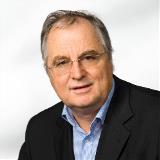
Alois Jungbauer, PhD, Professor & Head, Biotechnology, Institute of Bioprocess Science and Engineering, BOKU University

Professor Alois Jungbauer received his PhD in Food Technology and Biotechnology from the University of Natural Resources and Life Sciences Vienna, Austria 1986. He serves since then as a professor at the Department of Biotechnology. He teaches Protein Technology and Downstream Processing and Bioprocess Engineering. He also acts as area head and Deputy Director of Research in the Austrian Centre of Industrial Biotechnology. He is currently working in the field of bioengineering of proteins, plasmids and viruses with special focus on expression, downstream processing and characterization of large biomolecules. For more than 10 years he is working on continuous manufacturing of biopharmaceuticals. As a proliferate researcher he has more than 340 publications on recombinant protein production and bioseparation, 17 patents and 12 book contributions and recently a monograph entitled “Protein Chromatography , Process Development and Scale Up”. He is executive editor and co-founder of Biotechnology Journal, and member of editorial boards from numerous journals in the area of biochemical engineering. He acts also a the vice president of research of the European Society of Biochemical Engineering Science.
- Accelerating Analytical Development
- Next-Generation Analytical Methods
- Intensified and Continuous Processing
- AI and Process Control
- Cell Therapy CMC and Manufacturing
- Advances in Recovery and Purification - Part 2
- Advances in Recovery and Purification - Part 1
- Gene Therapy Manufacturing
- Gene Therapy CMC and Analytics
- Process Modelling and Developability
- Cell Culture and Cell Line Engineering - Part 2
- Cell Culture and Cell Line Engineering - Part 1
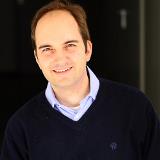
Stefan Junne, PhD, Associate Professor, Bioscience and Engineering, Aalborg University

Stefan Junne's aim is to develop and optimize bioprocesses in mono-, co- and mixed cultivations, considering single-cell physiological and population-related aspects. This includes the use of taylor-made bioreactor design and process analytical technology to investigate and understand the interactions between cells and bioreactors and implications for process design and control. The impact of population heterogeneities on process performance and how these effects can be reduced is another important aspect of his research. His activities also include research on single-use bioprocessing: single-use bioreactors offer a unique design versatility on a commercial scale, are interesting for their combination in upstream bioproduction to optimize cell viability. The study of single-use bioprocessing under the consideration of sustainability aspects is important to develop tools to decide for a certain combination of single-use and stainless steel equipment. Stefan is currently associate professor of bioprocess engineering at Aalborg University, Denmark. Previously, he was a group leader at TU Berlin. He also completed his PhD in bioprocess engineering there in 2010, after having graduated as a chemical engineer in 2003.

Philipp Kaiser, Principal Scientist & Bioinformatics Expert, TRD Biologics Process R&D, Novartis Pharma AG

No bio available.
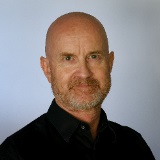
Oliver Kaltenbrunner, PhD, Scientific Director, Process Development, Amgen Inc.

Oliver Kaltenbrunner is a Scientific Director of Amgen Process Development and has extensive experience leading the advancement of clinical and commercial processes through their development cycle. Roles have focused on commercial and clinical process support, process optimisation, process economics, multi-site engineering strategies, process transfer, and validation support. Currently, he leads a Manufacturing Technologies group, overseeing the introduction of new technologies into GMP manufacturing of therapeutic biologics.
- Accelerating Analytical Development
- Next-Generation Analytical Methods
- Intensified and Continuous Processing
- AI and Process Control
- Cell Therapy CMC and Manufacturing
- Advances in Recovery and Purification - Part 2
- Advances in Recovery and Purification - Part 1
- Gene Therapy Manufacturing
- Gene Therapy CMC and Analytics
- Process Modelling and Developability
- Cell Culture and Cell Line Engineering - Part 2
- Cell Culture and Cell Line Engineering - Part 1
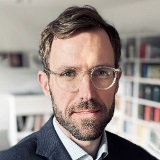
Jens Keune, Manager, Data Science & Digital Products, Viralgen Vector Core

Jens Keune leads the Data Science and Digital Products team at Viralgen, where he is responsible for providing decision support to clients and various departments by leveraging data captured from over 1,000 batches produced. His research interests focus on utilizing data to enhance both product quality and process efficiency in AAV manufacturing. Prior to joining Viralgen, Jens held several positions in the Data Science field at Bayer, collaborating across multiple functions and divisions. He holds a B.Sc. and M.Sc. in Mathematics.

Tony Bou Kheir, PhD, Head, Analytical Development and QC, Purespring Therapeutics

Tony Bou Kheir leads the analytical development and Quality Control programme at Purespring Therapeutics; developing new analytics to support product characterisation and release. Tony has over 10 years’ experience in the design, development, and application of novel analytics to support product characterisation. Tony leads a team focused on improving AAV manufacture through the design and application of new technologies for in-process testing, and the development of more accurate and robust assays for product release. Tony’s team also oversees assay qualification and technology transfer to 3rd party GMP facilities and CDMO’s.
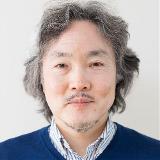
Takanori Kigawa, PhD, Senior Scientist, RIKEN Center for Biosystems Dynamics Research

Takanori Kigawa, Dr. Sci., is Senior Scientist of RIKEN Center for Biosystems Dynamics Research (BDR), Japan. He graduated from Graduate School of Science, the University of Tokyo in 1994 and started his professional career as a research scientist in RIKEN. He has developed a variety of technologies related to the cell-free protein synthesis system and NMR-based structure biology, and most of them were patented and commercialized.
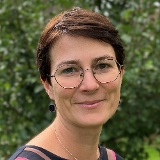
Bettina Knapp, PhD, Lab Head, Upstream Development, Boehringer Ingelheim

Dr. Bettina Knapp has been a part of Boehringer Ingelheim's biopharmaceutical division since 2015. Initially, her responsibilities encompassed various areas, including the validation of Stage 3 drug substances and drug products where she also served as a representative during authority and customer inspections in the realm of Boehringer’s biopharmaceutical contract manufacturing. In the past five years, her focus has shifted towards biopharmaceutical development, with a particular emphasis on upstream development. However, her expertise also extends to downstream and analytical development. As of 2022, Dr. Knapp has assumed the role of Laboratory Head in Late Stage Upstream Development. In this capacity, she is, among other responsibilities, actively promoting the integration of models and digital twins into bioprocess development. Furthermore, Dr. Knapp has recently taken on the additional role of Product Owner for the Scrum Team "Biobase." This team is responsible for an internally developed software that integrates Biological Development and Manufacturing data. This software facilitates rapid, data and model driven decision making and fosters digital innovation across the entire development process.
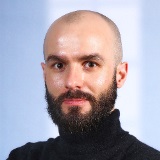
Lovro Kramer, PhD, Principal Scientist, Cell Line Engineering, Novartis Pharmaceuticals

Lovro Kramer is a Principal Scientist at Novartis Biomedical Research in Menges, Slovenia, where he is leading a team focused on the engineering of cell lines for biologics drug candidates. His previous roles at Novartis Technical R&D included leading biosimilar cell line development and serving as Innovation Area Lead, where he contributed to various cell line and drug substance development innovation projects. Lovro’s earlier research positions at UMC Utrecht in the Netherlands and the Jozef Stefan Institute in Slovenia focused on protein engineering, particularly T cell receptors. He earned his PhD from the Jozef Stefan Institute, developing DARPin based theragnostic tools targeting proteolytic enzymes involved in cancer and inflammatory diseases.
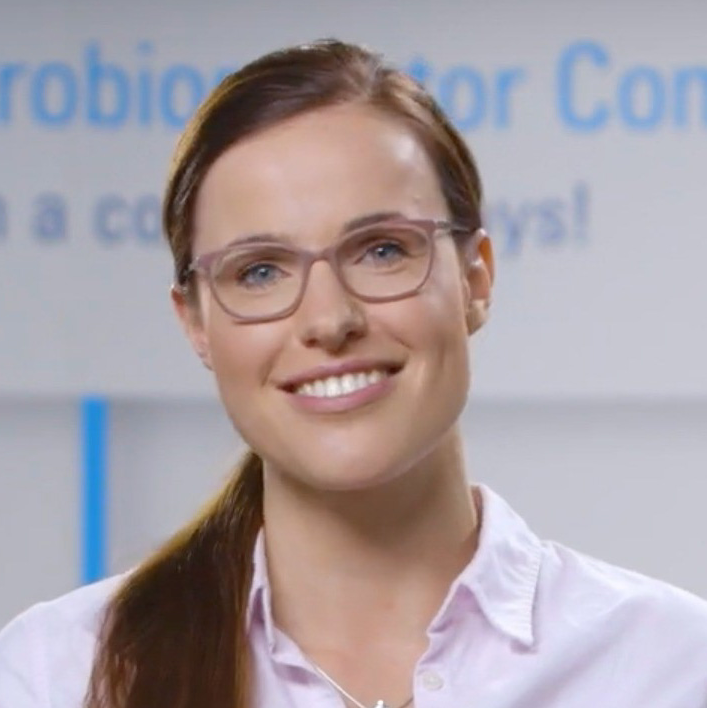
Anna Kress, Mgr, Applications Science, Beckman Coulter GmbH

Anna Kress is an trained biotechnologist with over 9 years of experience in the Life Science Industry. She holds a Bachelor and a Master of Science in Molecular Biotechnology. In 2015 she joined the R&D department in the company m2p labs as a Scientist. In the following years Anna had different roles in R&D and led a team of scientists in the development of microbioreactors. Following the acquisition of m2p-labs by Beckman Coulter Life Sciences Anna took on Technical Product Management responsibilities and since beginning of 2023 built an Applications team for the Cell Health & Centrifugation Business unit.
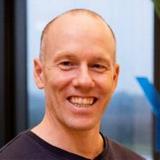
Dan Bach Kristensen, PhD, Scientific Director, Symphogen

Dan Bach Kristensen holds a Ph.D. in biology and B.Sc. degree in chemistry. Dan is specialized in protein chemistry and mass spectrometry, which he initially applied in the field of proteome research in Japan and later in Denmark. For the last 20 years Dan has been working with analytical characterization in the biopharmaceutical industry, on projects ranging from early discovery through to product registration. Clinical indications include bleeding disorders, neutropenia, autoimmune diseases and oncology. Dan currently works as a Scientific Director at Symphogen, which is specialized in the development of antibody-derived formats, including antibody-drug conjugates and bispecific antibodies, for the treatment of cancer and other indications.
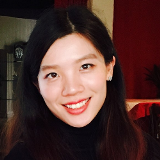
Mengyao Li, PhD, Senior Expert, Scientific Office, Drug Substance, Novartis Pharma AG

Mengyao Li currently works as a Senior Expert Science & Technology for Drug Substance Development in Novartis Pharma AG in Basel, Switzerland. She is leading the Global PAT Network for Biologics where they are working on defining and aligning the PAT strategy, development and implementation roadmap in the company. Previously she worked as a post-doctoral researcher in the Advanced Production & Manufacturing Technology group at Novartis, where her main tasks are related to the development of the Next Generation High Density Perfusion Bioprocess. Mengyao holds a PhD in Biotechnology and Bioprocess Engineering (University of Lorrain, France), where she worked on real-time monitoring of cell culture process by using spectroscopic techniques.
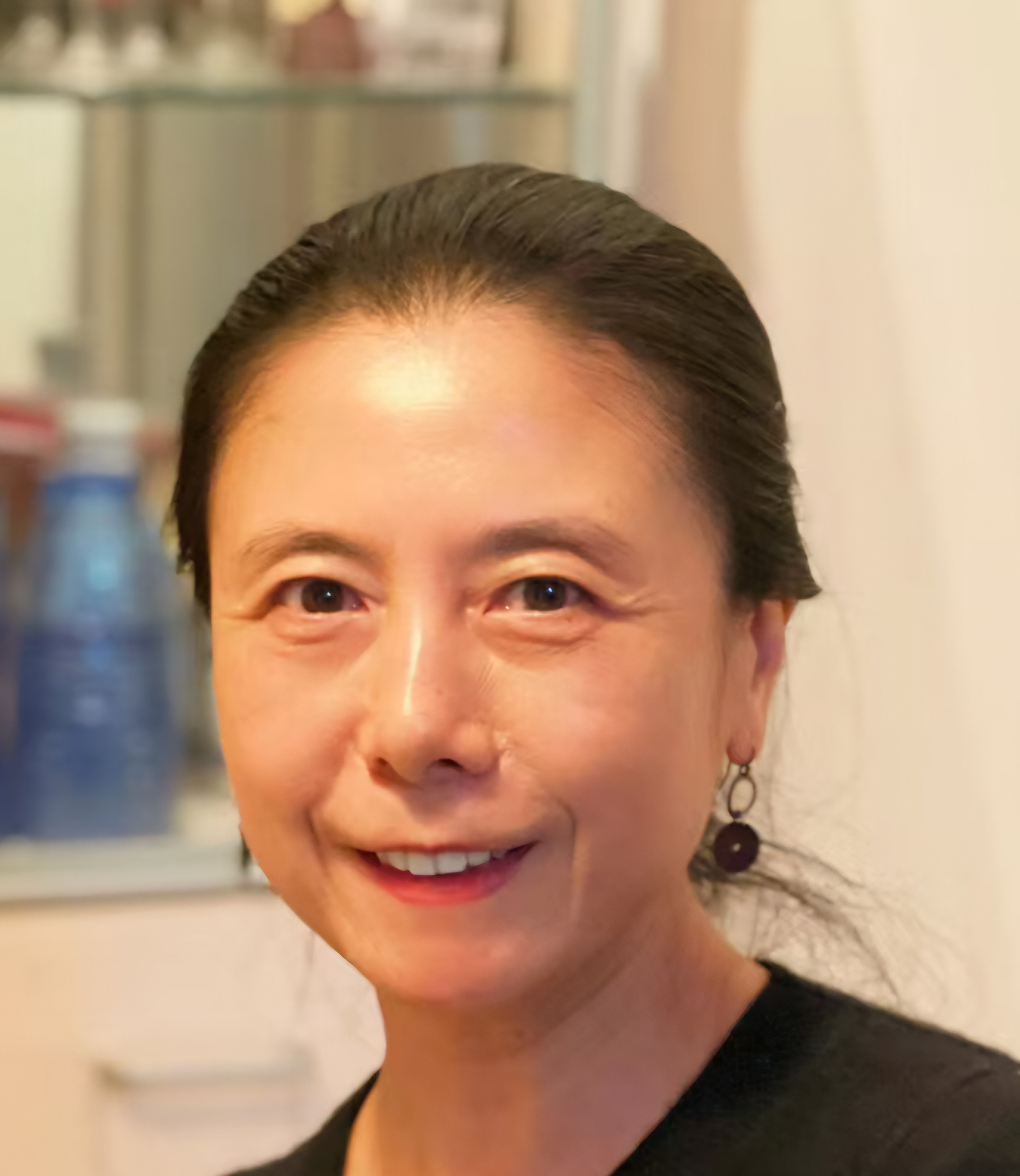
Nan Lin, Director, Service Engineering, Cytiva

Nan Lin, Ph.D. is the Director of New Technologies and Cell Culture Service Applications at Cytiva. She champions innovation management, focusing on evaluation and adoption of new technologies for Cytiva Cell Culture. She leads strategic collaborations with academia and industry for Cell Culture products and services. For over 20 years, Nan has served various roles in Cell Culture, from R&D to technical consulting. Nan holds a Ph.D. in Toxicology from University of Minnesota.
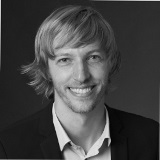
Fabian Lindel, PhD, Principal Scientist II, Novartis Pharma AG

PhD in Dresden in the field of molecular virology - development of novel transient retroviral (foamyviral) vectors (2015-2019) University collaboration with GSK developing cell lines for lentiviral vector manufacturing (2020-2021) Leading lentiviral cell line development at Novartis (2021-today)
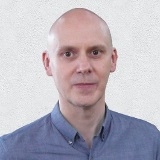
Anthony Lodge, PhD, Senior Director, Regulatory Affairs CMC, Autolus

Anthony is an experienced Regulatory-CMC professional with extensive pre- and post-authorisation expertise in cell and gene therapies and biological medicinal products gained through roles at Chiesi Farmaceutici S.p.A., GSK, Kite Pharma, T-knife Therapeutics, and currently Autolus. Anthony has made significant contributions to three successful EU Centralised Procedure marketing authorisation applications, in addition to several clinical trials. Anthony has a strong and demonstrable track record of providing innovative, high value solutions to complex regulatory CMC challenges through cross-functional collaboration. Through leadership of Kite’s EU Regulatory CMC program for CAR-T cell therapies in haematological malignancies, Anthony delivered successful submissions to introduce post-authorisation manufacturing facility changes and major process changes for YESCARTA, and played a key role in developing the CMC package in support of the TECARTUS MAA. Having supported early-stage genome-edited TCR-T cell therapy programs for solid tumours at T-knife for two years from December 2022, Anthony has recently started a new CAR-T cell therapy journey at Autolus, primarily supporting development programs for autoimmune diseases.
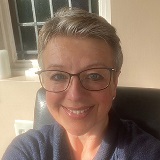
Sharon Longhurst, PhD, Director, Advanced Biologics Consulting

Sharon Longhurst is the founder and Director of Advanced Biologics Consulting (ABC) Ltd. She has more than 20 years experience in product development, encompassing viral vectors, cell therapy and recombinant protein products. Prior to establishing ABC, Sharon was VP Development at GADETA BV, and has held senior roles in industry, including Immunicum AB (now Mendus) and Akari Therapeutics. Sharon was a Senior Quality Assessor at the MHRA for 6 years and worked closely with the EMA at that time, primarily within the Biologics Working Party and Gene Therapy Working Party.
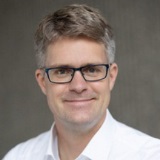
Jorgen B. Magnus, PhD, Professor & Chair, Biochemical Engineering, RWTH Aachen University

Jørgen Magnus, with a Master's in Chemical Engineering and a PhD in Biochemical Engineering, has extensive experience in pharmaceutical production. He previously worked at NNE Pharmaplan and Bayer AG, focusing on biotechnology and process development. In 2023, he became head of Bioprocess Engineering at RWTH Aachen University, where his research centers on bioreactor process characterization for industrial and pharmaceutical biotechnology applications.
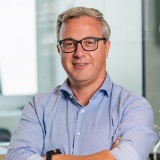
Juergen Mairhofer, CEO & Co-Founder, enGenes Biotech GmbH

Juergen is the co-founder of enGenes Biotech, leveraging his deep expertise in genetic and bioprocess engineering, as well as continuous bioproduction and plasmid DNA production. He previously worked as a Research Associate at the University of Natural Resources and Life Sciences (BOKU), Vienna, Austria. Before founding enGenes Biotech, Juergen held a Postdoctoral position at the Austrian Centre of Industrial Biotechnology (ACIB GmbH), where he contributed to the 'Microbial Cell Design' research initiative, focusing on sequencing and engineering various host strains for the production of recombinant proteins. In addition to his work on continuous bioproduction processes and plasmid DNA production, Juergen has authored numerous peer-reviewed scientific publications and book chapters. He has also received advanced training in Systems Biology and genome-scale stoichiometric modeling from the University of Iceland and in Microbial Genomics and Transcriptomics from the University of Bielefeld. He holds a PhD in Biotechnology from the University of Natural Resources and Life Sciences, Vienna, Austria.
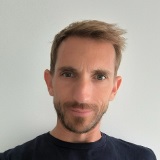
Pablo Mancheño, PhD, Associate Scientific Director, R&D, Takeda

Pablo is Associate Director in Takeda with more than 18 years of experience in cell therapy. After completing his degree in Biology in the Universidad Autonoma de Madrid and he started his career in academy, he joined to Cellerix (subsequently Tigenix) 17 years ago as technician. Pablo read his PhD in the company, a not usual situation, but it made him continue his career in the cell therapy area. He has accumulated a bast experience in the developing of cell therapy product from research and development first steps to the commercialization (Alofisel) being involved in the investigation of mechanism of action, methods of analysis development and product release, and last years he has been focused on processes of automation, downstream and upstream processes in cell therapy.
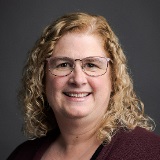
Diane McCarthy, PhD, Senior Scientific Director, Global Biologics, US Pharmacopeia

Dr. McCarthy is Senior Director, Science and Standards in USP’s Global Biologics Department, where she leads development and maintenance of standards and tools to support quality of medicines and oversees the USP biologics laboratories in the US and India. Her team supports standards and tools across a diverse range of therapies, including vaccines, peptides, cell and gene therapy, monoclonal antibodies, and other protein therapeutics. Prior to joining USP, Diane worked for several small CROs that focused on the use of mass spectrometry for characterization of biologics, host cell proteins, and biomarkers. Dr. McCarthy earned her Ph.D. in Biochemistry from the University of Texas at Austin.
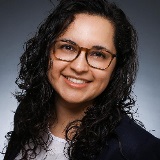
Angeles Mecate Zambrano, Senior Scientist, Viral Gene Therapy, Merck KGaA

Angeles Mecate Zambrano, Ph.D., is a senior scientist in our Process Solutions, Liquid Formulation R&D team, specializing in formulation development of novel modalities. With a profound passion for medical virology, she has dedicated her academic and professional journey to deepening her understanding and conducting research in this field. In 2022, Dr. Mecate Zambrano joined Merck, bringing her knowledge and insights in virology to the table. Her primary objective is to leverage this expertise in creating innovative formulation solutions utilized for viral vector manufacturing.
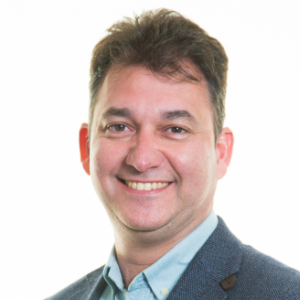
Alain Medina, Field Specialist Manager, Ecolab Life Sciences

Alain is an experienced professional with 18+ years of diverse skills in healthcare, bioprocessing, and life sciences. He currently serves as a Field Application Specialist at Purolite, providing technical sales support to customers in Southern Europe and other European regions. Alain is committed to maintaining the business's "Technically Differentiated" status by providing direct technical activities to important accounts and sustaining customer relationships. He previously worked at Sartorius Stedim, Cytiva, Fujifilm Diosynth Biotechnologies, Actavis Biologics, and 3P Biopharmaceuticals. He holds a degree in Chemical Engineering from the Superior Polytechnic Institute José Antonio Echevarría in La Habana, Cuba.

Helena CM Meyer-Berg, PhD, Scientist, Gene Therapy, Roche

Helena Meyer-Berg, Ph.D., is a Senior Scientist in Gene Therapy at Roche, based in Greater Munich, Germany. With a robust background in developing innovative therapies for genetic diseases, Helena's work focuses on advancing recombinant adeno-associated virus (rAAV) platforms in bioprocess research, including early rAAV supplies as well as holistic approaches to stable rAAV producer cell line development. Her academic journey includes a Ph.D. from the University of Oxford, where she developed rAAV vectors targeting a rare and fatal pediatric lung disease. Helena's professional experience includes roles such as rAAV Platform Technology Manager at Revvity, where she led cross-functional initiatives to enhance rAAV vector safety, efficacy, and manufacturing.
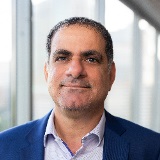
Ali Mohamed, PhD, Senior Vice President, CMC, Immatics

Ali Mohamed, Ph.D., Vice President, CMC, Immatics US Inc. was formerly the Senior Director of Manufacturing Operations/Manufacturing Development at PCT (now HCATS). Dr. Mohamed has nearly 20 years of experience in process development and GMP manufacturing of regenerative medicine, cell and gene therapy products at various CMOs and clinical-stage companies, including Lonza, Osiris Therapeutics, and AlloCure. The speaker holds a Ph.D. in Molecular Pharmacology from Medical College of Ohio and postdoctoral fellowship in Neuroscience and Neurobiology from Georgetown University.
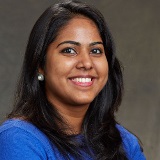
Yogapriya Murugesan, Scientist I, Gene Therapy & Drug Product Development, Biogen

Yogapriya works as a Scientist I at Biogen, Inc. in the Drug product group of Biologics and Advanced therapy medicinal products department. She has over 10 years of experience in Research and Product Development of Biologics comprising of monoclonal antibodies and AAV drug products. She has managed multiple biologics programs at different stages of development. Her current role focuses more on the developability assessment of biologics (mAbs and AAV) to help in candidate selection process for R2D transitions and end-to-end drug product development of biologics drug product candidates from R2D to FIH with respect to formulation lockdown, process development, and container closure selection. In the past, she has worked as a biochemist in discovery programs focused on purification, biochemical, and biophysical characterization of monoclonal antibody therapeutics.

Shawn Nelson, Global Segment Mgr - Biopharma, Marketing, Procelys by Lesaffre

Shawn has a multi-dimensional role at Procelys. He is the Regional Marketing Manager for North America and the Global Strategic Market Manager for Biopharma and Microbiome. Prior to taking on these roles, he was the Technical Service Manager for North America for Procelys, working as the technical lead on yeast based nutrients sold into the fermentation industry. Prior to joining Procelys, Shawn served as Adjunct Assistant Professor for the Department of Biological Systems Engineering at UW-Madison and he worked for Didion Milling in Cambria WI as R&D Manager. Shawn earned his Ph.D. from University of Wisconsin-Milwaukee in Microbiology studying bacterial motility and completed his postdoc work at the Forest Products lab in Madison working on genetic engineering of alternative yeasts. Since graduating from Grad school, he has been working with Yeast and Fermentation and continues to do so today as he transitions away from the technical and into the business side of science.
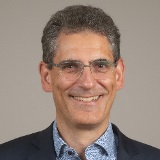
Peter Neubauer, PhD, Lab Head, Bioprocess Engineering, TU Berlin

Professor Neubauer is head of the Bioprocess Engineering Laboratory at TU Berlin which is leading in bioprocess scale-up and automated bioprocess development. He leads the KIWI-biolab which was selected as an International Future Laboratory in AI for bioprocess development. He is co-author in more than 300 publications and 20 patents and cofounder of the companies BioNukleo, Enpresso, and Cell-tainer. In 2023 he obtained the prestigious Thought Leader Award from Agilent.
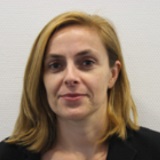
Christiane Niederlaender, PhD, Vice President, Technical CMC, Parexel

Christiane has spent 9 years at the UK medicines regulator MHRA, most recently as the Unit Manager of the Biologicals Unit. At the same time Christiane was a biologicals Senior Quality Assessor and the UK delegate at the EMA committee for advanced therapies (CAT). As UK CAT Rapporteur she was responsible for managing the portfolio of all UK ATMP products (cell and gene therapies). She was also the Rapporteur for the EMA CAT Gene Therapy Guideline, and a drafting group member in all other quality related ATMP drafting groups, including GMP for ATMPs. Prior to joining MHRA, Christiane worked with the UK regulator for the European Tissues and Cells Directive as a quality manager and inspector. Christiane joined Parexel in January 2021 as Vice President Technical for CMC and now works with developers to get cell and gene therapies into the clinic and to market. Since joining Parexel, Christiane has done a significant amount of work within the US regulatory system and can advise on EU, UK and US CMC considerations.

Christian Niehus, Molecular Biology and Analytics, Science, Cytiva

Christian Studied biology at heinrich-heine-university Düsseldorf with a focus on protein biochemistry. He Joined Cevec in 2013 in downstream processing and analytics and later transitioned to viral vector analytics and automation. Since acquisition of Cevec by Cytiva in 2022, Christian is working as senior scientist in cell line development focusing on process improvements.
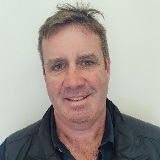
David O’Connell, PhD, Associate Professor, School of Biomolecular & Biomedical Science, University College Dublin

I am a research scientist who is deeply fascinated by the behaviour of proteins in cells, in living systems and in recombinant engineered systems. The junction of biology, chemistry and physics is of particular interest to me and is manifest in my many collaborative relationships in Europe and the US. I am also a Science Foundation Ireland funded investigator with BEACON, the Bioeconomy Research Centre, that enables me to use my expertise in protein engineering to drive creation of value in the circular economy, ensuring that excellent science creates products and technologies with sustainable properties, and to further enhance the reputation of UCD as Ireland’s number one university.

Michael H. Olma, PhD, Supervisor GMP Advanced Analytics, Biologics Analytical R&D, MSD Werthenstein BioPharma GmbH

Michael Olma is a biochemist by training with PhD from the ETH Zurich. After switching from academia to industry, he developed bioanalytical assays for small and large molecules at a global CRO. In 2016, he joined MSD to introduce Mass Spectrometry for GMP at the site. Since 2020, he also leads the GMP Advanced Analytics lab, which focuses mainly on establishing, using and advancing Biologics PAT tools in regulated environments.

Milena Opacic, PhD, Principal Scientist II, Johnson & Johnson

I have expertise in drug product development (Toxicology studies to commercial launch), with a focus on the late-stage drug product development. My experience includes formulation, characterization, and process development for adenovirus, protein and bioconjugate-based vaccines, as well as adeno-associated viruses. I lead the authoring and reviewing of drug product development sections for the CMC dossier, specifically Module 3 (BLA, MAA). Prior to joining Johnson & Johnson, I worked at Baxter R&D Europe in Brussels, Belgium, focusing on the late-stage development and lifecycle management of advanced surgery products and renal solutions. Additionally, I completed two postdoctoral fellowships that explored stabilizing of membrane proteins using amphipathic polymers, known as amphipols, in Amsterdam, The Netherlands, and Paris, France. I hold a PhD in Biophysical Chemistry from the University of Groningen, The Netherlands, and an MSc in Biophysics from the University of Belgrade, Serbia.
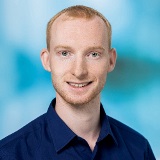
Jan Ott, Researcher, Biotechnology and Cell Cultivation Technique, Zurich University of Applied Sciences

After completing his dual Bachelor's and Master's degree at the Anhalt University of Applied Sciences in Köthen, Germany, Jan Ott started as a PhD student and research assistant in the Cell Cultivation and Bioprocess Engineering group at the ZHAW Zurich University of Applied Sciences in 2019. In 2024, he completed his dissertation on "Upstream Process Intensification Using an Ultra-High Cell Density Chinese Hamster Ovary Cell Bank" in cooperation with the TU Berlin. He continues to work as a research associate at the ZHAW, mainly in teaching and in research and development, focusing on mammalian cells.
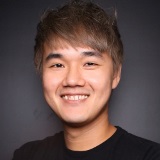
Zach Pang, PhD, Group Leader, Bioprocess Data Integration, A*STAR

Zach Pang is Group Leader at the Bioprocessing Technology Institute, A*STAR and Senior Scientist at the Bioinformatics Institute, A*STAR, where he leads a research team to drive digitalisation in biomanufacturing. His research interests include mechanistic modelling and process modelling of bioprocesses. He is also Assistant Professor (adj) at NUS Department of Biomedical Engineering and NTU School of Chemistry, Chemical Engineering, and Biotechnology. He developed an interest in cross-disciplinary research when he was pursuing his Bachelor of Technology in Mechanical Engineering at the National University of Singapore, where he did his undergraduate research on cancer cell mechanics. He subsequently joined the Department of Bioengineering at Imperial College London to pursue his PhD under the A*STAR Scholarship. Zach Pang also holds a Master of Business Administration from Quantic School of Business and Technology and a postgraduate certificate in learning and teaching in higher education from the University of London. He is a chartered engineer (CEng) with the Engineering Council UK, an associate fellow of the Higher Education Academy, UK (AFHEA) and a member of the Institute of Physics and Engineering in Medicine (MIPEM).
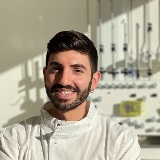
Vassilis Paraskevas, Senior Scientist, Cell Process Development, Technical Operations & Global Technical Development, Orchard Therapeutics

I am biologist by degree with a background in immunology and cancer immunotherapy. I graduated in 2016 with a Master's degree in Applied Genetics and have been working as a process development scientist since. I have worked closely with CMC professionals to plan and perform experiments to provide data for regulatory submissions as well as authoring and reviewing IND/IMPD sections. My scientific interest lies in the development of more robust, closed and automated processes that can deliver life saving treatments to patients.
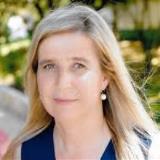
Cristina C. Peixoto, PhD, Head Downstream Process, Animal Cell Technology, iBET Instituto de Biologia Experimental Tecnologica

Cristina Peixoto graduated in Applied Chemistry (Branch Biotechnology) New University of Lisbon and she holds a PhD in Engineering Sciences from Instituto de Tecnologia Quimica Biológica (ITQB) from New University of Lisbon. Working in Animal Cell Technology field since 1996, her PhD contributed to the establishment of several scalable purification processes for complex biopharmaceuticals, mainly virus and virus like particles for vaccine and gene therapy. Cristina coordinated several research contract projects with Industrial partners, some of the processes developed are nowadays in GMP for phase I and II and she published over 60 manuscripts in refereed international journals.
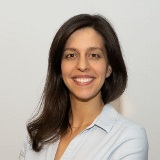
Patricia P. Aguilar, PhD, Research Group Leader, ACIB GmbH

Patricia Pereira Aguilar is a Senior Scientist at the Austrian Centre of Industrial Biotechnology (acib, GmbH) and integrated in the Institute of Bioprocess Science and Engineering (IBSE) at the BOKU University, Vienna, Austria. In 2020, she completed her Ph.D. degree in “Biomolecular Technology of Proteins” (BioTop) at BOKU, under the supervision of Professor Alois Jungbauer. After that she started working as a Postdoctoral Researcher at acib and since January 2024 as a Senior Scientist and Research Group Lead. Her research focus on the development of downstream processes and analytical tools for enveloped bionanoparticles for vaccine and gene therapy applications, such as virus-like particles, viruses and extracellular vesicles. Her expertise includes chromatography, filtration and ultracentrifugation techniques and biochemical and biophysical assays for bionanoparticle/protein/nucleic acid quantification and characterization. Within her work as Scientist/Senior Scientist, she has contributed to grant/project writing, application and acquisition, project lead, publication writing and reviewing, participation in international conferences, and supervision and guidance of PhD/Master students and technicians.
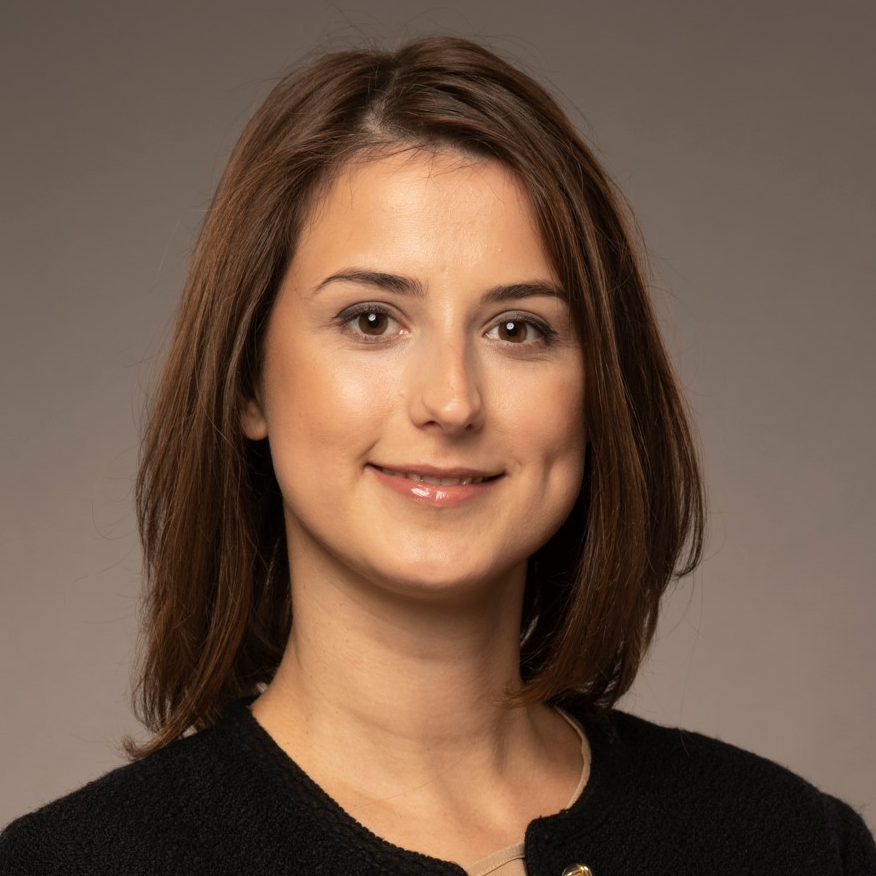
Ivana Petrovic Koshmak, Process Development Manager, Advanced Therapy Solutions, Sartorius

Ivana Petrovic Koshmak is Head of Upstream Process Development at Sartorius BIA Separations in Slovenia. She leads a team optimizing viral and non-viral vector production for cell and gene therapy, supporting R&D and customer projects with cell-based assays and PCR analytics. Her group is currently expanding into a department to offer analytical solutions for upstream and downstream process development, including chromatography solutions, mass photometry, UC, and other. A molecular biologist with a gene therapy background, she previously worked at the International Centre for Genetic Engineering and Biotechnology in Trieste, Italy. Dr. Petrovic Koshmak holds a master's degree in applied genetics from the University of Belgrade, Serbia, and a PhD in biomedical science and biotechnology from the University of Ferrara, Italy.
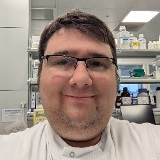
Curtis Phippen, PhD, Senior Scientist, Downstream Process, UCB Biopharma

Curtis Phippen acquired his PhD from Southampton University in 2015, with a focus on the purification and crystallization of Pseudomonas proteins. In 2016 he joined the downstream team at UCB where he performed late-stage process characterisation work on a range of E. coli and mammalian-based antibody formats. During this time he also worked on several different innovation projects to streamline the clarification and capture steps of mammalian processes. This led to the development of a robust Protein A Expanded Bed Adsorption (EBA) method that can purify antibodies directly from cell culture. In 2023 he joined the early-stage team at UCB and is now helping to develop new processes.
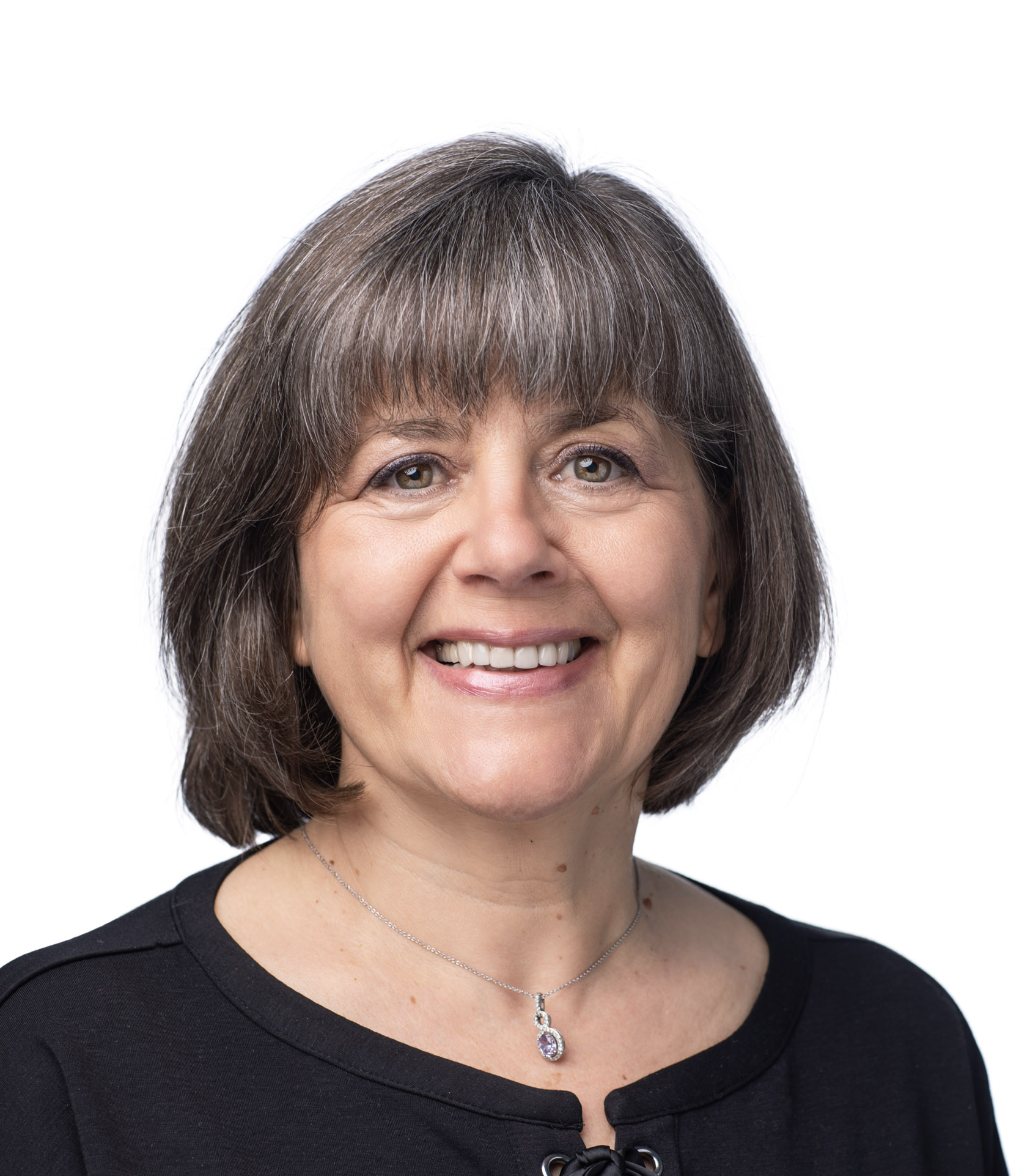
Graziella Piras, Sr Dir Strategic Marketing, Strategic Marketing, 908 Devices Inc

Graziella has over 15 years of experience in developing applications and solutions for upstream bioprocessing. Before joining 908 Devices, she held various positions in marketing and R&D at Thermo Fisher Scientific, leading projects to support the Cell Culture and Cell Therapy business. Graziella obtained her Ph.D. in Biochemistry & Molecular Biology from the University of Liège in Belgium. She did her postdoc studying the role of epigenetic regulation on cancer and development at the National Cancer Institutes in Maryland.
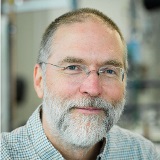
James M. Piret, PhD, Professor, Chemical & Biological Engineering, Michael Smith Labs, University of British Columbia

Jamie Piret is a Professor at the University of British Columbia in the Department of Chemical & Biological Engineering and the School of Biomedical Engineering. He has a Bachelor’s from Harvard in Applied Mathematics to Biochemistry and a Chemical Engineering doctorate from MIT. At UBC his research focuses on innovative process and device technology for therapeutics biomanufacturing. His recognitions include the 2012 Cell Culture Engineering Award and the 2022 Meggers Award, from the Society for Applied Spectroscopy.
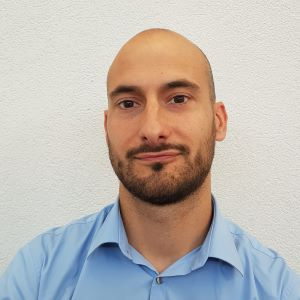
Gerald Platteau, Senior Application Manager, Application Team, JSR Life Sciences

Gerald holds the position of Senior Application Manager at JSR Life Sciences. He leads the team for technical customer services in Europe, and supports the global sales and marketing teams for commercial products as well as the testing of new products and development of new applications.
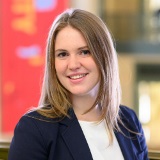
Carme Pons Royo, PhD, Postdoctoral Associate, Massachusetts Institute of Technology

Maria del Carme Pons Royo is a bioprocess engineer with experience in development and optimization of biotechnological products. She completed her bachelor's degree in biotechnology from Universitat Autonoma de Barcelona, followed by a master's degree in Life Science and Technology from TU Delft. Recently, she successfully defended her PhD thesis at BOKU, titled "Millifluidic devices to accelerate process development with a primary focus on protein precipitation and filtration." Currently, she is employed as a postdoctoral researcher at MIT, where she continues her research on the development and optimization of innovative bioprocesses utilizing cutting-edge prototyping tools.

Arnaud Poterszman, PhD, Research Director, Integrated Structural Biology, IGBMC

After studying at ENS Cachan (now Paris-Saclay), Arnaud Poterszman completed his PhD from Strasbourg University and joint the CNRS one year later. He holds a Research Director position and performs his studies in the Department of Integrated Structural Biology at IGBMC, Illkirch France. He has a dual expertise in Structural and Molecular biology with insights on expression technologies and sample preparation. His research is focused on eukaryotic multi-protein complexes involved in transcription regulation and DNA repair by nucleotide excision, particularly, the transcription/DNA repair factor TFIIH and its partners (Orchid 0000-0002-6702-5777)
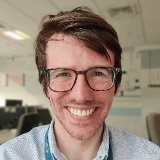
Philip Probert, PhD, Technology Lead, CPI, United Kingdom

Philip is an experienced research scientist familiar with high-throughput process development, design of experiment approaches to process optimisation and process scale up and validation. At CPI Biologics, Philip manages the technical team, working across mammalian, microbial, viral and cell-free projects.
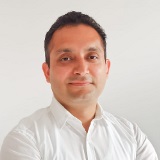
Pranav Puri, PhD, Head, Process Development, VectorY Therapeutics

Pranav Puri, PhD, Head Process Development, is leading process development and scale up activities at VectorY to ensure availability of robust and well-yielding platform technologies for AAV production and thereby enabling the progress of VectorY’s candidate novel therapeutics (AAV-based vectorized antibodies) from early R&D to clinic.
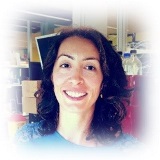
Johanna Rapp, Senior Expert, DSP, Novartis

Johanna Rapp earned her Master's in Biochemistry from the University of Toledo, Ohio, and a Master's in Chemical Engineering from the National Superior Institute of Chemistry in Lille, France. Currently, she serves as a Senior Expert in the downstream processing group at Novartis, Basel, boasting extensive experience and proficiency in large-scale GMP process development. Her passionate commitment to environmental preservation has led her to play a significant role in Novartis' environmental sustainability initiatives. Today, she actively integrates sustainability at every level of process development and laboratory activities to ensure the delivery of sustainable products.
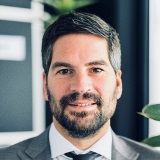
Darryl Ratty, Executive Director, Global ESG, SK Pharmteco

Darryl Ratty is an experienced expert in sustainability, safety, environmental, and governance programs. He has led global ESG initiatives, achieving significant milestones in regulatory compliance, stakeholder engagement, and sustainability culture. Darryl holds a Master's degree in Environmental, Health, and Safety Management, a Bachelor's degree in Quality Management, and a Bachelor's degree in Mechanical Engineering. He is dedicated to driving organizational change and promoting sustainable practices across industries.
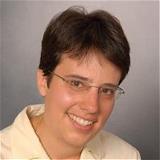
Veronika Reisinger, PhD, Lab Head, Physico Chemical Characterization, Novartis AG

Veronika Reisinger works currently in the physico-chemical characterization group at Novartis Global Drug Development in Austria as laboratory head. Before joining Sandoz in 2011 as scientist, Veronika worked as a postdoctoral fellow in a protein biochemistry laboratory at the University of Stavanger, Norway. Her current work focuses on the mass spectrometric characterization of biopharmaceuticals and associated impurities.

Kathleen Retterson, Senior Vice President, Regulatory Affairs Practice CMC, ELIQUENT Life Sciences

Kathleen has more than 40 years’ experience in the biologics industry. Kathleen has served as site head and general manager at Amgen, Genzyme, and Charles River, where she oversaw manufacturing, QA, QC, process development, and supply chain. The majority of her professional career was spent at Amgen. Over the course of her tenure at Amgen, Kathleen held a variety of positions of increasing responsibility, including VP / GM of Amgen’s Rhode Island Facility and Site Head of Amgen’s multi-plant Thousand Oaks manufacturing site. Over her career, Kathleen has been responsible for the successful manufacture of a number of top biologics including EPOGEN, Neupogen, Aranesp, Neulasta, Infergen, Enbrel, Cerazyme, Fabrazyme, and Myozyme. Kathleen holds an undergraduate degree from Brown University, and a master’s degree from Stanford University.
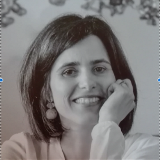
Cecilia Roque, PhD, Associate Professor in Bioengineering, NOVA University of Lisbon

Cecilia Roque is an Associate Professor in Bioengineering at the Chemistry Department, School of Science & Technology at NOVA University (Lisbon, Portugal). Cecilia is a principal researcher at UCIBIO-NOVA and leads the Biomolecular Engineering Lab. She holds a degree in Chemical Engineering (Major in Biotechnology) & a PhD in Biotechnology from Instituto Superior Técnico, and has an Habilitation in Bioengineering from NOVA University of Lisbon. Cecilia has been a Visiting Scholar at the University of Cambridge and at the Catholic University of America, a Postdoctoral Researcher at the Institute of Biotechnology (University of Cambridge) and at INESC-MN (Lisbon, Portugal), and a visiting Professor at the University of Cambridge (2006, 2011), University of São Paulo (2015-2018), University of Nantes (2011) and City University of New York (2018). Her research focuses on bioengineering, namely on the development of advanced functional materials that combine novel affinity receptors with bio-based and sustainable materials for bioseparation, biosensing and biomedical applications. Check: https://sites.fct.unl.pt/biomolecular_eng/
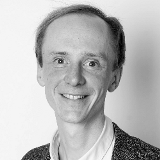
Peter Rugbjerg, PhD, Lecturer, Chalmers University; CSO and Founder, Enduro

Peter is a bioengineer and entrepreneur, with PhD and postdoc training from Techn. Uni. of Denmark and Chalmers. Founder of Enduro and today serves as CSO, overseeing R&D and implementation projects.

Michael Sachpekidis, Senior Strategic Account Manager, Optimal Industrial Technologies Ltd

No bio available.
.tmb-0.jpg)
Tarik Senussi, PhD, Head of Technology Transfer, New Technologies, Recordati
.tmb-0.jpg)
Head of the Tech transfer team for New Technologies Recordati Rare Diseases, managing the commercial production and supply of the antibody products. Prior to joining Recordati Senior Director of Process Development at Novartis/Gyroscope Therapeutics Ltd managing clinical production and platform processes for rAAV manufacture from in-house developed suspension platform. At GSK, worked as Lead Upstream Process Development Scientist, where he was responsible for establishing the upstream process development platform and team for the production of viral vectors. During this time, Tarik undertook support of the first ex-vivo cell and gene therapy to gain commercial approval and development of a suspension platform to progress pipeline assets. Prior to working in viral vectors and gene therapy, spent 9 years at Medimmune Ltd and Lonza Biologics working in cell culture and fermentation sciences and new product development respectively. Experience of host cell line development with the opportunity to commercialise the Potelligent CHOK1SV cell line for monoclonal antibody production. Tarik holds a BSc in Cell Biology and a PhD in Biochemical Engineering both from University College London.
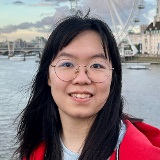
Yuxin Shen, Researcher, School of Biological Science, University of Edinburgh

Yuxin Shen is a PhD student in Biomolecular Control Group in University of Edinburgh, supervised by Dr Diego Oyarzún and Prof Grzegorz Kudla. Before coming to Edinburgh, she obtained a BSc in Chemistry at Fudan University, and an MSc in Chemical Engineering at Imperial College London. Yuxin’s research interests lie at the intersection of machine learning and synthetic biology, with a particular emphasis on deep learning methods for optimisation of protein production and the genotype-phenotype mapping problem. Her current work focuses on DNA sequence representation methods and the sequence optimization pipeline.
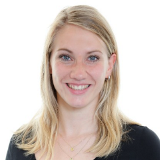
Sabrina Simpson-Koch, PhD, Scientist, Gene Therapy Technical Development, Roche Diagnostics GmbH

Sabrina is a seasoned expert in downstream bioprocessing with nearly 10 years of experience. She earned her PhD in Biophysics and Molecular Microbiology from the University of Groningen, the Netherlands, in 2019. Following her doctoral studies, Sabrina joined Purolite, where she specialized in resin development and purification optimization for novel monoclonal antibodies. In early 2021, Sabrina transitioned to Roche, joining the Gene and Cell Therapy department. Since then, she has been leading bioprocess development for plasmid production and purification, working on projects that range from small-scale parallel automated solutions to pilot-scale operations.
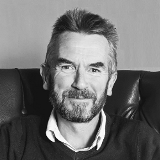
Geoff Smith, PhD, Professor, Pharmaceutical Process Analytical Technology, De Montfort University

Geoff Smith is Professor of Pharmaceutical Process Analytical Technology in the Leicester School of Pharmacy at De Montfort University (UK). His research group focuses on pharmaceutical applications for impedance, dielectric and terahertz spectroscopies alongside optical techniques such as laser speckle and optical flow. He is responsible for the development of through-vial impedance spectroscopy (TVIS) as a PAT tool for monitoring phase behaviour (ice formation and eutectics), ice interface temperatures, primary drying rates and end points. This development marks the first time that impedance spectroscopy has been used to characterize materials within conventional glass freeze-drying vials, without having to insert the electrodes into the product (i.e. the solution under-going freeze-drying). This feature of the technology sets it apart from other in-process impedance measurement systems, in which a bulky electrode assembly is inserted into the solution being freeze-dried, to provide a product-non-invasive technology. His research on TVIS has focused on understanding the correlation between impedance measurements and the physical state of the material inside the vial, which has helped optimize lyophilization processes.
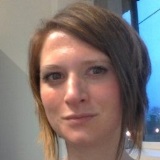
Sarah Snykers, PhD, Director of Operations, Legend Biotech

Sarah Snykers is Senior Director of Operations at Legend Biotech, Ghent Europe. She has 20 years of experience in cell and gene therapy (CGT). She has headed several departments in Biotech companies, including Manufacturing, QC, R&D and MS&T; all focused on clinical or commercial production of autologous & allogeneic cell- and gene therapeutic products. Over the last 15 years, she was involved in 3 greenfield production hubs, and in several global Tech Transfer projects for clinical/commercial production of CGT.
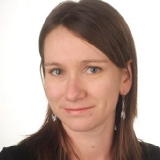
Katarzyna Sobkowiak, PhD, Scientist, Biotech Development Center, Merck KGaA

Katarzyna Sobkowiak received her Master degree in Medical Biotechnology at Poznan University of Medical Sciences in 2011 and her PhD in Molecular Biology at University of Geneva in 2016. Katarzyna has a strong background in molecular biology and mammalian cell culture. In 2018, Katarzyna has moved to biopharmaceutical industry. She started as Cell Line Development Scientist at Merck Serono SA (affiliate of Merck KGaA, Darmstadt, Germany). Currently, she works as Scientist in Cell Line Technology Innovation group at Ares Trading SA (an affiliate of Merck KGaA, Darmstadt, Germany), where she is involved in evaluating new technologies and developing new protocols for improving and accelerating CLD workflow. Additionally, she has worked on developing protocols for stem cell culture and differentiation.
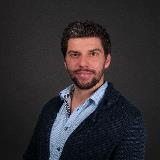
Michael Sokolov, PhD, Lecturer, ETH Zurich; COO and Chairman, Datahow AG

Dr. Michael Sokolov is co-founder and COO of DataHow AG, a spin-off company from ETH Zurich specialized on process data analytics and modeling with a particular focus on the biopharmaceutical and chemical domains. He also holds a lecturer position for statistics for chemical engineers at ETH.
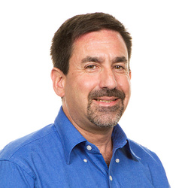
Daniel Some, Sr Principal Scientist, Marketing, Wyatt Technology

Daniel Some leads product marketing for Wyatt’s process analytical and macromolecular interaction instrumentation. Prior to joining Wyatt he was involved in semiconductor and military electro-optics industries. Dan obtained his Ph.D in Physics from Brown University and carried out postdoctoral research at Los Alamos National Lab and Weizmann Institute of Science.
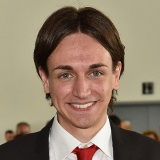
Mattia Sponchioni, PhD, Assistant Professor, Department of Chemistry, Materials and Chemical Engineering, Politecnico di Milano

Mattia Sponchioni received his Master of Science in Chemical Engineering in 2015 with a grade of 110/110 cum laude and his PhD cum laude in Industrial Chemistry and Chemical Engineering in 2018, both at Politecnico di Milano. After his PhD, Mattia spent one year as a post-doc at ETH Zürich in 2019, working on the development of continuous countercurrent chromatographic processes for the purification of biopharmaceuticals, from therapeutic proteins to oligonucleotides. From 2020 to the present he is an assistant professor at the Department of Chemistry, Materials and Chemical Engineering “G. Natta” at Politecnico di Milano. Here, Mattia Sponchioni is leading the group of biomanufacturing, active in the development of continuous perfusion processes for the production of mRNA and bioplastics via fermentation and in the conversion of the traditional single-column batch chromatographic purifications into continuous countercurrent processes based on two twin columns. The vision of the group, inspired by the principles of Industry 4.0, is towards process intensification, to be achieved through both continuous processes and integrated manufacturing, as a way not only to increase productivity but also the sustainability of biomanufacturing, by reducing the wastes of buffers and feedstocks in the direction of a reduced environmental footprint.
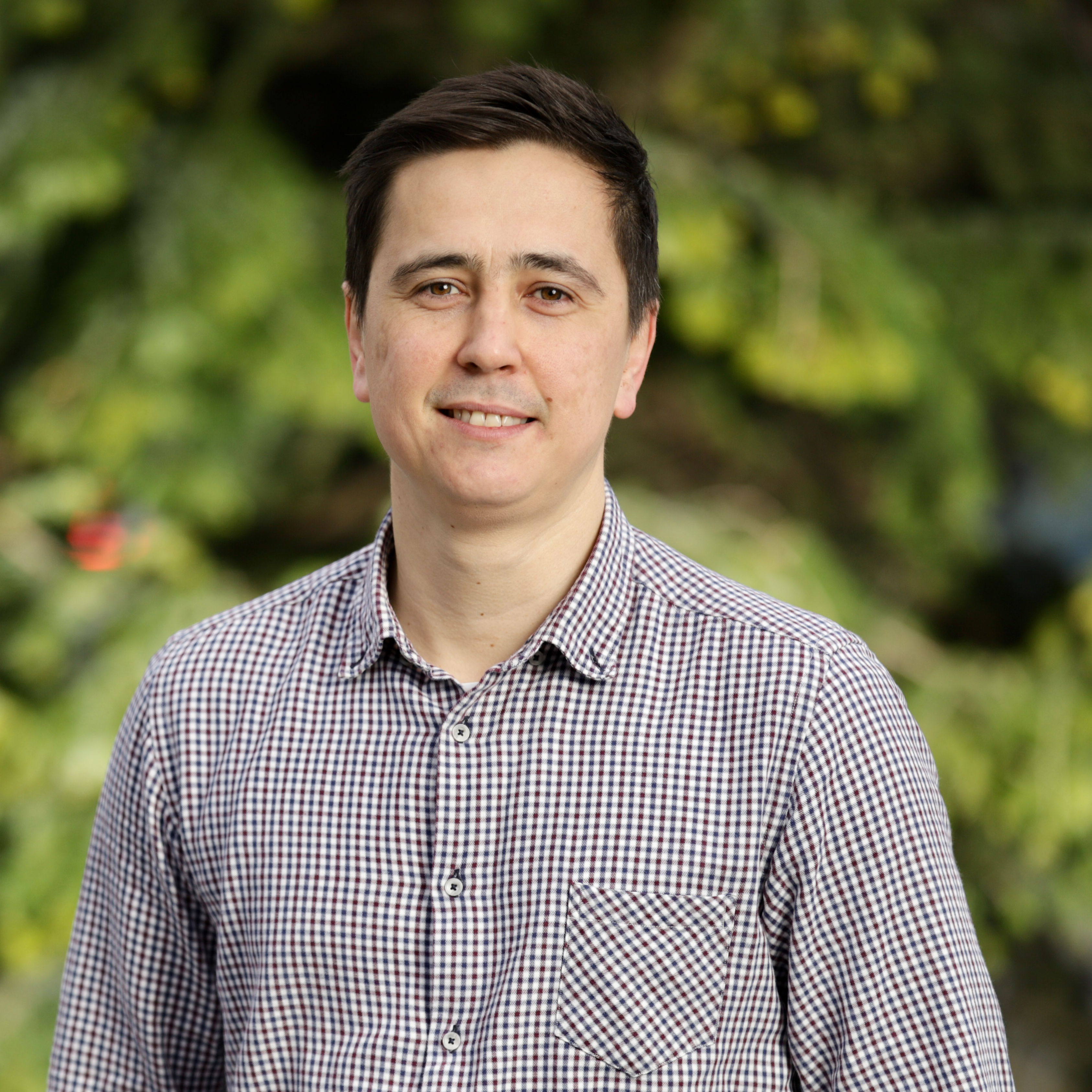
Artur Stanczak, Field Application Specialist EMEA, Process Chromatography, Bio-Rad Laboratories

Artur Stanczak is a Process Chromatography Application Specialist at Bio-Rad Laboratories. He received his Master of Science in Biotechnology from the University of Maria Sklodowska-Curie in Lublin. Artur has more than 13 years of experience in the biotechnology and biopharma industry, specializing in downstream processing of therapeutics. Experienced in process development, characterisation, scale-up and validation of biologics. Artur supports method development, downstream purification applications and the Bio-Rad chromatography resins portfolio as well as managing the process chromatography application laboratory located in Munich, Germany.

Jacob Staudhammer, Principal, Dark Horse Consulting Group

Jacob joined Dark Horse Consulting in 2021, bringing over 5 years of experience in the Biotechnology industry, primarily focused on process development and characterization of gene therapy viral vectors from early pre-clinical development to design of PPQ campaigns.
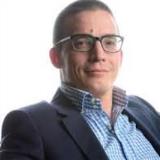
Gerald Striedner, PhD, Head, Institute of Bioprocess Science and Engineering, Professor, Biotechnology, University of Natural Resources and Life Sciences Vienna (BOKU), Austria

University Professor at the Department of Biotechnology (BOKU), Head of the Institute of Bioprocess Science and Engineering, Head of working group fermentation technology and principal investigator in the Austrian Center of Industrial Biotechnology (ACIB). The working group has established an integrated systems approach for bioprocess development and is focused on the implementation of PAT and QbD concepts in bioprocessing and rational host cell design. CHO, E. coli, insect cells and vero cell lines are used as expression systems for production of a representative set of biopharmaceuticals (mABs, Fabs, scFvs, VLPs, viruses, DNA.
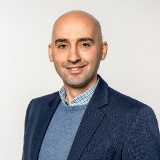
Hristo Svilenov, PhD, Associate Professor, TUM

Dr. Svilenov is currently an Associate Professor at the Technical University of Munich. His research interests are in the development, formulation and manufacturing aspects of biotherapeutics. Before joining TUM, Dr. Svilenov was Associate Professor at Ghent University. Previously, he was a postdoctoral researcher funded by a Peter and Traudl Engelhorn Fellowship and a grant from the Else Kröner-Fresenius Foundation in the group of Prof. Johannes Buchner at the Technical University of Munich. From 2016 to 2019, Dr. Svilenov did his PhD training supported by a Marie Sklodowska-Curie Fellowship under the supervision of Prof. Gerhard Winter at the Ludwig Maximilian University of Munich. He defended his doctoral thesis with the highest distinctions in Germany (summa cum laude) and received the AbbVie prize and the Carl-Wilhelm-Scheele of the German Pharmaceutical Society for his work. Dr. Svilenov is a pharmacist by training.

Clare Thompson, Global Change Facilitator, BioPhorum

Clare supports global teams of scientists, engineers and sustainability leaders to create tools to reduce the environmental impact of biomanufacturing. She has led the creation of an environmental impact maturity model for biomanufacturing, setting out the steps required to embed circularity and decarbonize across the product lifecycle. She is leading a team of engineers to target environmental hotspots in the biomanufacturing space, seeking to optimize HVAC through the creation of assessment tools and guidance documents for dynamic airflow control. She leads on BioPhorum's product carbon footprint calculation and reduction strategy.
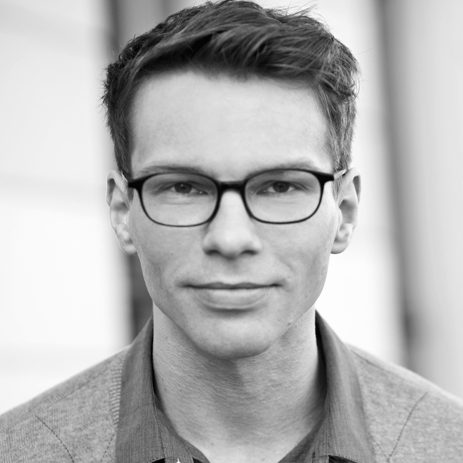
Sebastian Thuermann, Product Mgr, Product Mgmt, Tosoh Bioscience GmbH

Sebastian holds a PhD in chemistry from the University of Leipzig. In his academic and industrial career, he designed chromatographic systems - from tiny analytical microfluidic chips to large-scale production and purification systems. Today, he is a product manager responsible for multi-column chromatography at Tosoh. Author of numerous scientific papers, he regularly presents scientific results at international conferences or holds training courses.
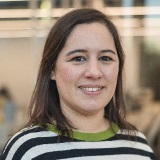
Sara Trabulo, PhD, Associate Principal Scientist, AstraZeneca

I have worked in the development of innovative drug delivery systems and on the discovery of cancer stem cell biomarkers and advanced therapies (from small molecule drugs to antibodies and gene-therapies). Currently, I am working towards the biopharmaceutical development of gene therapy-based therapeutics within AstraZeneca, with a particular focus on RNA vaccines (mRNA and self-amplifying mRNA). My focus is on the development of analytical methods that enable comprehensive product understanding and provide adequate product quality control. I am also actively engaged in internal and external workgroups, focusing on topics related to the quality of RNA-based therapeutics for human use.
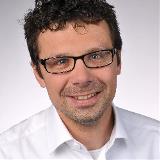
Jens Traenkle, PhD, Head, PAT & Automation, Product Supply, Pharmaceuticals, Bayer AG

Dr. Jens Traenkle is Head of PAT & Automation at Bayer. Together with his group he supports PAT activities for Bayer’s biopharma initiatives. The mission of the group is to bring lab analytics closer to the process and to integrate the resulting data. Dr. Traenkle has studied biochemistry and specialized on biophysics and protein structure during his PhD thesis at the Max-Planck-Institute for Molecular Physiology in Dortmund. He joined Bayer in 2006 and held previous positions in bioanalytics in Switzerland and in Germany within the company. Since 2012 he is responsible for PAT for Biotechnology at Bayer.
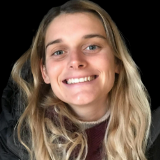
Molly B. Tregidgo, EngD, Senior Scientist, Bioprocess, Cell & Gene Therapy Catapult

Molly Tregidgo is an upstream processing specialist with over 8 years of experience in biotechnology. She holds a doctorate of engineering from University College London, where she designed novel scale-down models for high cell density perfusion bioprocess development. Currently a Senior Bioprocess Scientist at CGT Catapult in the UK, her work focuses on the development and optimization of intensified processes for cell expansion and production for both gene delivery and allogeneic cell therapy processes.
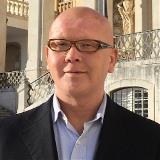
Susumu Uchiyama, PhD, Professor, Biotechnology, Osaka University

Dr. Uchiyama, PhD, is Professor in the department of Biotechnology, Graduate School of Engineering, Osaka University, Japan, and is also currently Visiting Professor at Kyoto University and ExCELLS, Japan. His research topics are science-based engineering in the field of solution biophysics of protein and colloidal particles, especially by using various kinds of biophysical methods, such as analytical ultracentrifugation, mass spectrometry (especially native MS and HDX-MS), and calorimetry. His research interests include energetic understanding of immune-related proteins and virus vectors for gene therapy. Container closure system for biopharmaceuticals with better quality and more safety is also in his recent scope. He has published more than 200 peer-reviewed papers, including those in high impact journals, such as Nature and PNAS, and is on the Editorial Advisory Board for the Journal of Pharmaceutical Sciences. In addition, Dr. Uchiyama has received Young Investigator Awards from the Protein Society of Japan, and is a member of the organizing committee of the Protein Society of Japan and the project committee of the Japan Association of Animal Cell Technology.
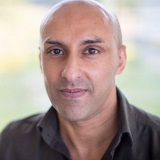
Shahid Uddin, PhD, Senior Director, Formulation Development and Laboratory Operations, Immunocore

Dr. Shahid Uddin is currently Director of Drug Product, Formulation & Stability within the CMC department at Immunocore. His team is responsible for bringing research candidates into clinic and commercialization. Technology is focused around developing ImmTAC as therapeutic agents for different disease models. Prior to this he held the position of Head of Formulation at MedImmune (AstraZeneca) where he supported the biologics portfolio covering Monoclonal antibodies, Peptides, bispecifics, and other proteins. He has extensive experience in pre-formulation/formulation, forced degradation, delivery of biologics both for early and late-stage programs.
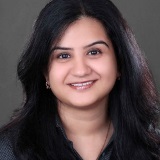
Annu Uppal, PhD, Director, Scientific Affairs, U.S. Pharmacopeia

Annu Uppal, in her role as Director, Scientific Affairs and Strategy, leads a team of scientists across USP regions to drive and support USPs scientific priorities. Her leadership focuses on spearheading scientific affairs activities to enhance stakeholder engagement, foster collaborations, influence regulatory decisions, and drive scientific impact. Furthermore, Annu leads pivotal initiatives such as USP's Science & Quality Framework and Knowledge Hubs for Multi-Attribute Methods, highlighting her dedication to advancing standards and scientific progress. Previously at SCIEX, she served as the global lead for mass spectrometry-based biopharma applications, specializing in physiochemical characterization and impurity profiling of biologics. Annu's areas of expertise include glycosylation analysis, MAM, native mode, and host cell protein analysis. She holds a Ph.D. in Biotechnology from Aligarh Muslim University, India and has authored numerous peer-reviewed manuscripts and book chapters. Annu also serves as faculty for the USP biologics education program on method development and validation.
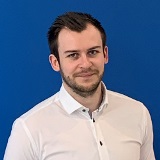
Laurens Vergauwen, Process Development Scientist, Technical and Scientific Solutions, Merck

Process Development Scientist in EMEA, Laurens supports customers in the development and optimization of various downstream purification technologies (chromatography, TFF, clarification, sterile and viral filtration). He has gained knowledge about purification strategies and PAT tools for different kinds of biopharmaceuticals, including viral vectors and mRNA. He obtained his Master’s Degree in Industrial Biochemical Engineering at the University of Leuven (Belgium).
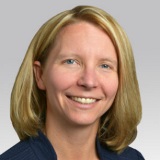
Christina Vessely, PhD, Senior Consultant, CMC Analytics & Formulation Development, Biologics Consulting Group, Inc.

Christina Vessely, PhD, RAC, has over 18 years of experience in analytical and formulation development within the biotechnology industry. Her experience ranges from early stage research and development for small and start-up firms through late stage development and commercialization for mid-sized and large pharmaceutical companies. She has been involved in priority review and/ fast track programs, she has participated in pre-approval inspections (PAI) and PAI enabling activities such as design and execution of validation studies and evaluation of GMP systems, as well as authoring and editing of analytical sections for multiple filings in both the U.S. and in the EU (IND/IMPD, BLA/MAA).
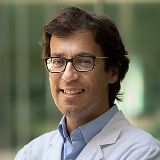
Joaquim Vives, PhD, Head of Production, Advanced Therapies, Banc de Sang i Teixits

Dr. Joaquim Vives, a biochemist with a PhD in Biochemistry, has extensive experience in R&D, focusing on cellular processes for therapeutic and diagnostic applications. He leads a research group at Banc de Sang i Teixits (Barcelona, Spain), developing Advanced Therapy Medicinal Products, and teaches at Universitat Autònoma de Barcelona. He has published 70+ articles, holds 3 patents, supervised 8 PhDs, and has served in leadership roles in scientific societies.

Bjørn Voldborg, MSc, Head, National Biologics Facility, DTU Bioengineering, Technical University of Denmark

Bjørn Voldborg has more than 20 years of experience working with recombinant protein expression from both academic and industrial settings. Bjørn was team leader in the biotech company Pharmexa A/S, responsible for molecular cloning and expression of protein-based drug candidates. From this, he went to the NNF Center for Protein Research at the University of Copenhagen as Head of the Protein Production Unit, and, since 2012, Bjørn has been heading the CHO Cell Line Engineering project dedicated to the engineering of improved protein production cell factories, and since 2021 he has been heading the Cell Line and Protein Production in the National Biologics Facility at the Technical University of Denmark.
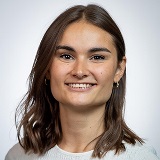
Isabel Waibel, Graduate Student, Biochemical Engineering, ETH Zurich

Isabel Waibel received her master's degree in process engineering from the Karlsruhe Institute of Technology and the University of Michigan. She is currently a PhD student in Prof. Arosio’s Lab at the Institute of Chemical and Bioengineering, Department of Chemistry and Applied Biosciences. In her research, she is focusing on innovative methods for modulating the biophysical properties of protein therapeutics through sequence and formulation engineering.
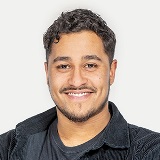
Patrick Werder, Research Scientist, Bioprocess Technology Group, University of Applied Sciences Northwestern Switzerland

Patrick Werder is a research assistant in the Bioprocess Technology Group, led by Thomas Villiger, at the University of Applied Sciences Northwestern Switzerland (FHNW) in Muttenz. Recently completing his master’s degree in biotechnology, Patrick's research is centered on advancing plasmid production processes, where he drives the development of innovative and scalable solutions aimed at enhancing the efficiency and robustness of bioprocess workflows. His expertise extends to the optimization of production and purification protocols for complex biotechnological applications. Patrick holds a bachelor's degree in chemical engineering from FHNW, where his academic work focused on process development and the extraction and purification of natural compounds. He began his career with an apprenticeship at Novartis Pharma AG, gaining invaluable experience in process development and production of preclinical active pharmaceutical ingredients in a cGMP environment. In addition to his technical expertise, Patrick serves on the board of the ISPE Student Chapter at FHNW, where he fosters connections between academia and industry by organizing networking events that promote collaboration and engagement with industry leaders.
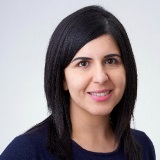
Pamela Whalley, PhD, Associate Director, CMC, Complement Therapeutics Ltd.

I am Associate Director, CMC at Complement Therapeutics in London. Prior to joining Complement I worked at Biogen, Nightstar Therapeutics and Cell & Gene Therapy Catapult. I have worked in Analytical development for most of my career and pivoted from supporting the development of In vitro diagnostics to Gene Therapy. I have gained >20 yrs experience in analytical development and half of this has been in supporting the development of Gene Therapies partnering with CDMOs. At Complement Therapeutics my role is to manage the CDMO and the associated activities and milestones to develop and deliver a gene therapy for the treatment of Geographic Atrophy.
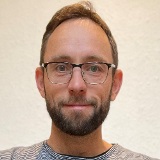
Matthias Wiendahl, Principal Scientist, Biopharm API Support, Novo Nordisk AS

I studied Biotechnology at the Technical University of Brunswick in Germany between 1998-2004 which I finished with a diploma degree. I then did my PhD in the downstream group led by Prof. Juergen Hubbuch at the Research Centre in Juelich, Germany. The project which focussed on high throughput screening techniques in downstream processing was co-funded by Novo Nordisk where I was hired in 2007. I received my PhD (in German Dr.-Ing.) in 2008. Since 2007 I have worked in different positions in Novo Nordisk within the field of manufacturing/downstream processing of drug substances. I now work as Principal Scientist in a Manufacturing Science and Technology department with a focus on chromatography and filtration looking for faster, integrated processes and suitable in/on-line analytical techniques.
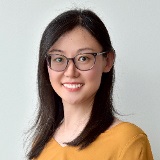
Sisi Zhang, Principal Scientist, Regeneron Pharmaceuticals, Inc.

Sisi Zhang is a principal scientist in the Analytical Chemistry group at Regeneron Pharmaceuticals. Her work in Regeneron is focused on host cell protein analysis and excipient analysis and published more than 10 first-author paper in these fields. Prior to Regeneron, she worked on metabolism at Princeton University. Sisi Zhang holds a BS in Pharmaceutical Sciences from Peking University and MS in Chemistry from Rutgers University.
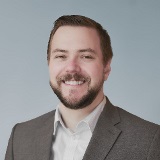
Kyle A. Zingaro, PhD, Head, Gene Therapy Process Sciences, UCB Pharma SA

Kyle Zingaro has 10+ years of experience leading technical and operational teams in preclinical through post-commercial development of biologics. Kyle is currently the UCB Head of Gene Therapy Process Sciences where he is accountable for leading the internal and external development of the manufacturing processes for UCBs gene therapy portfolio. Prior to joining UCB, Kyle was Head of Process Sciences at Thermo Fisher Scientific Viral Vector Services (formerly Brammer Bio) where he was responsible for leading commercial stage tech transfer and late-phase process development of Thermo Fisher's cell & gene therapy offerings. He holds a B.S. in biochemistry from Virginia Tech and a Ph.D. in chemical engineering from University of Delaware.
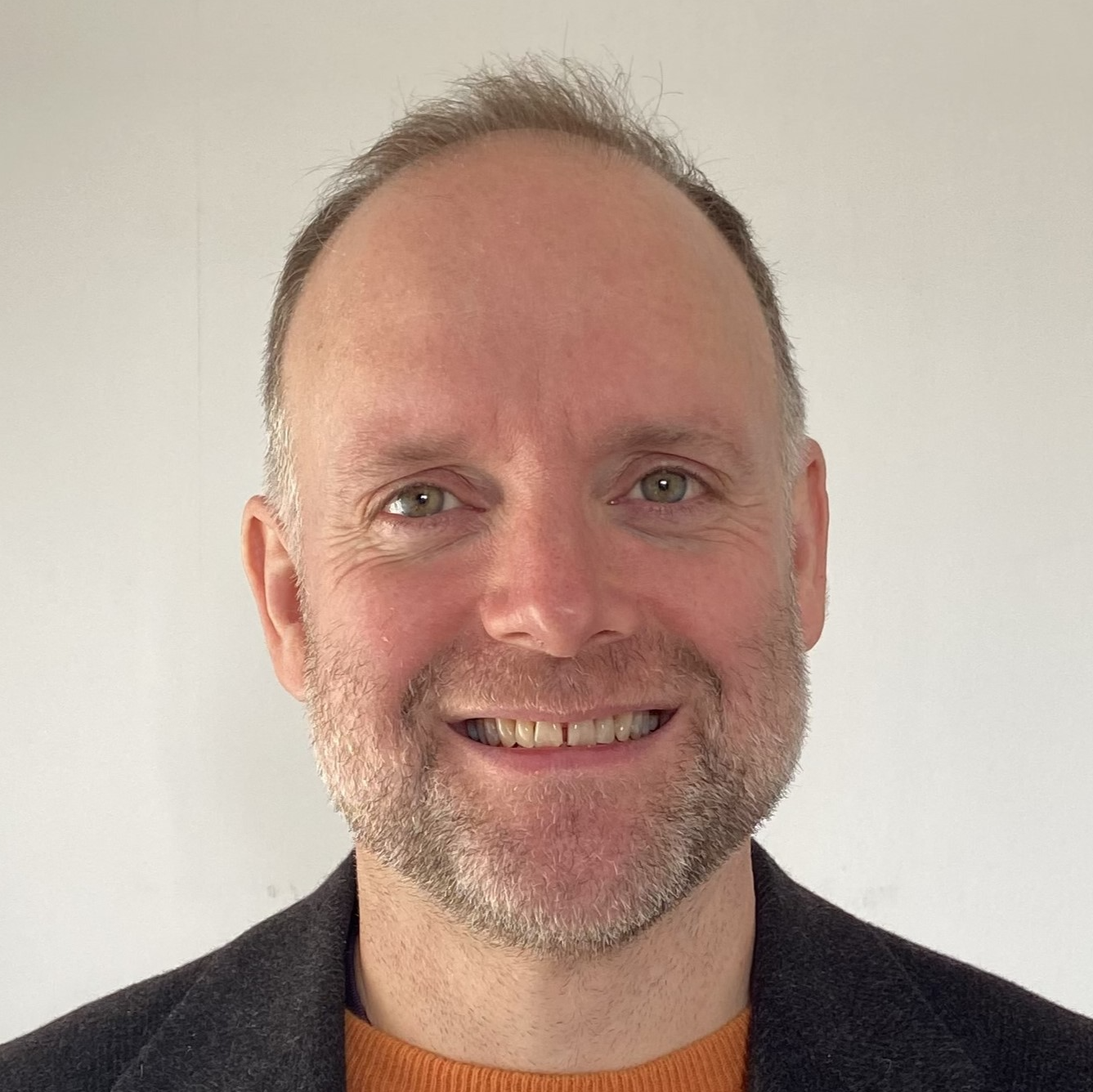
Barney Zoro, Product Manager, Process Development Bioreactor Technologies, Sartorius

Barney’s goal is to move the bioprocess development community forward through industry wide adoption of next generation bioreactor technologies. Barney holds a degree in Chemical Engineering (Cambridge, UK), a Doctorate in Biochemical Engineering (University College London), and has published papers in Biotechnology and Bioengineering. Barney joined Sartorius in 2010 and is currently Senior Product Manager, responsible for Ambr® 250 High Throughput.
